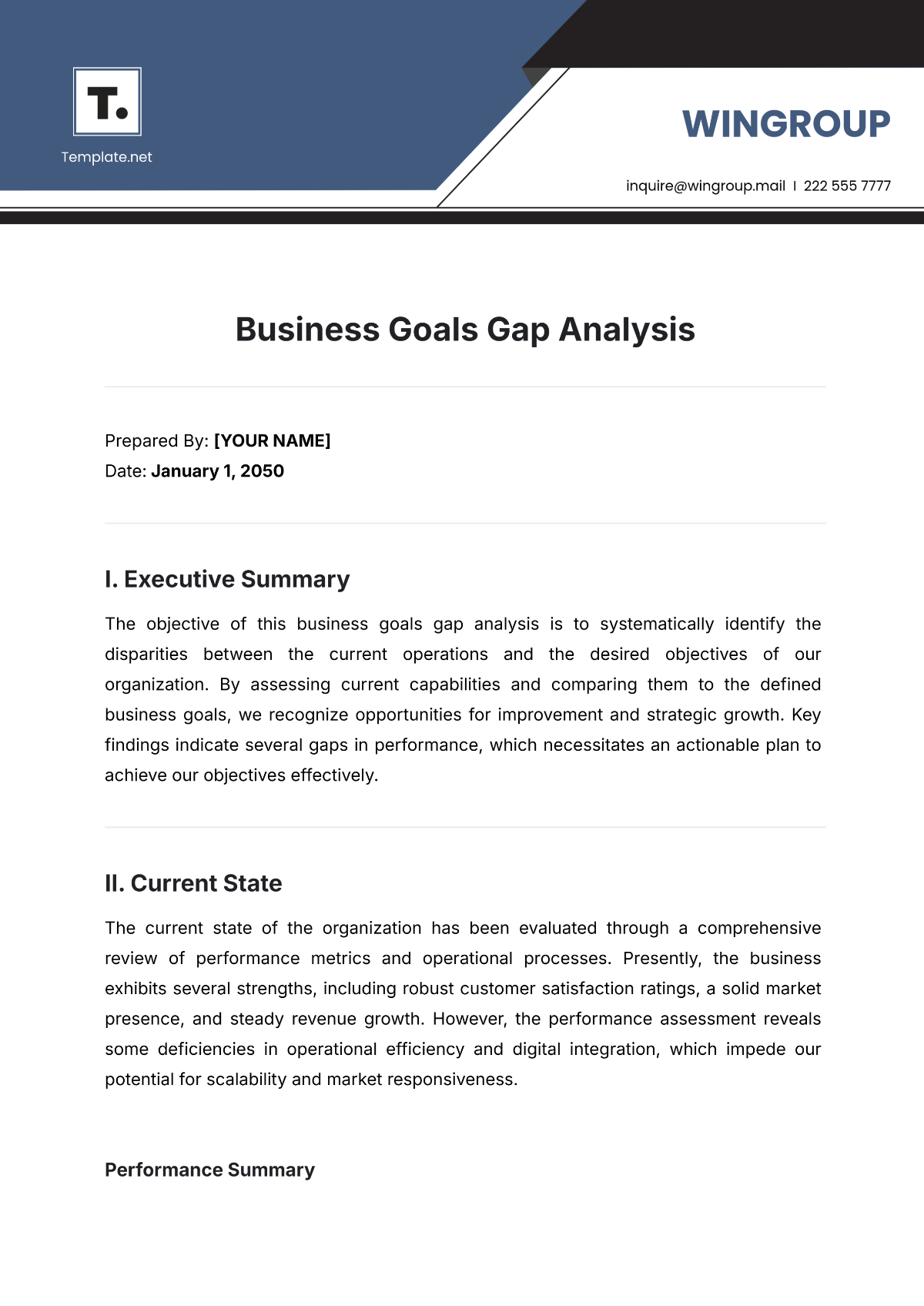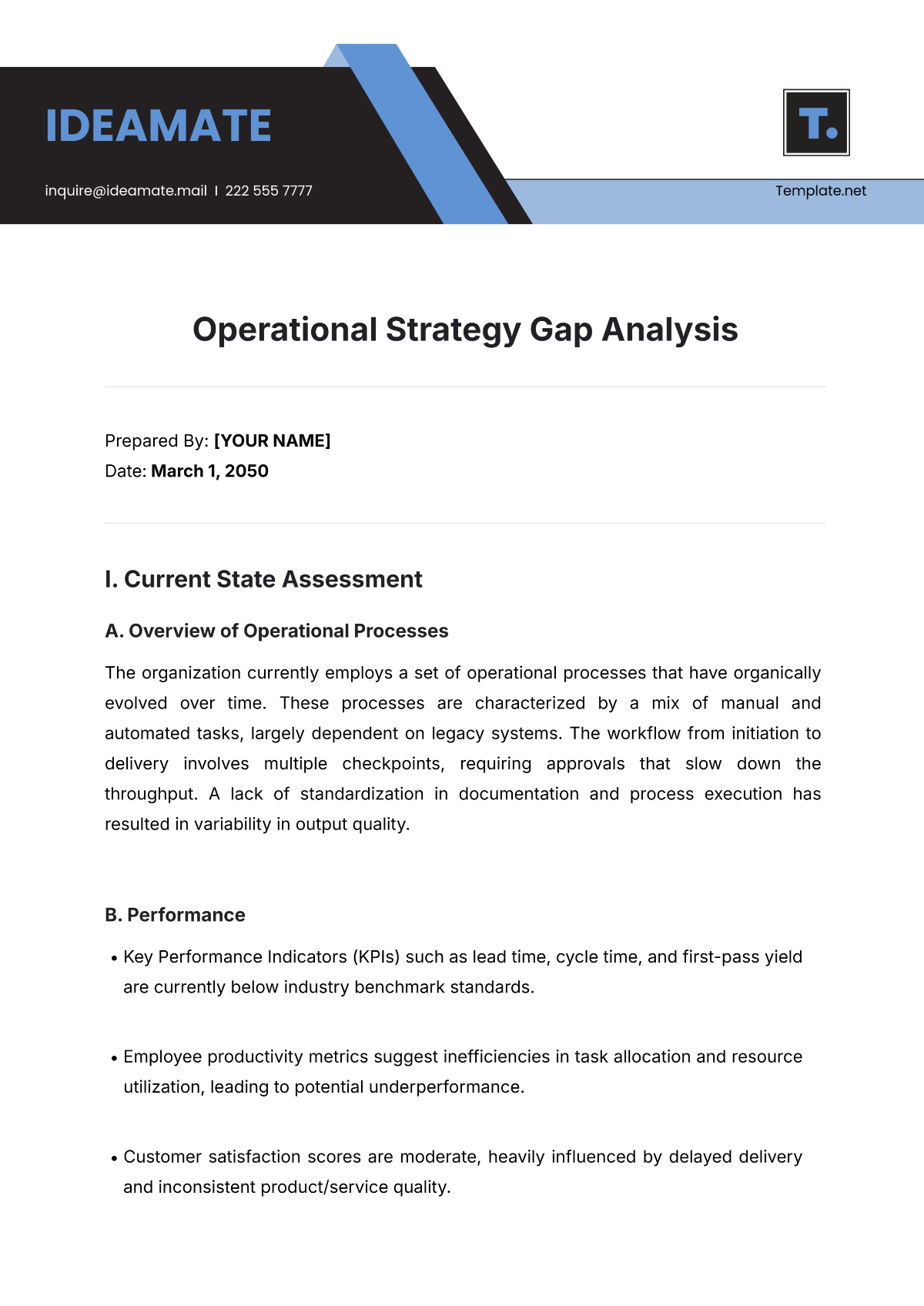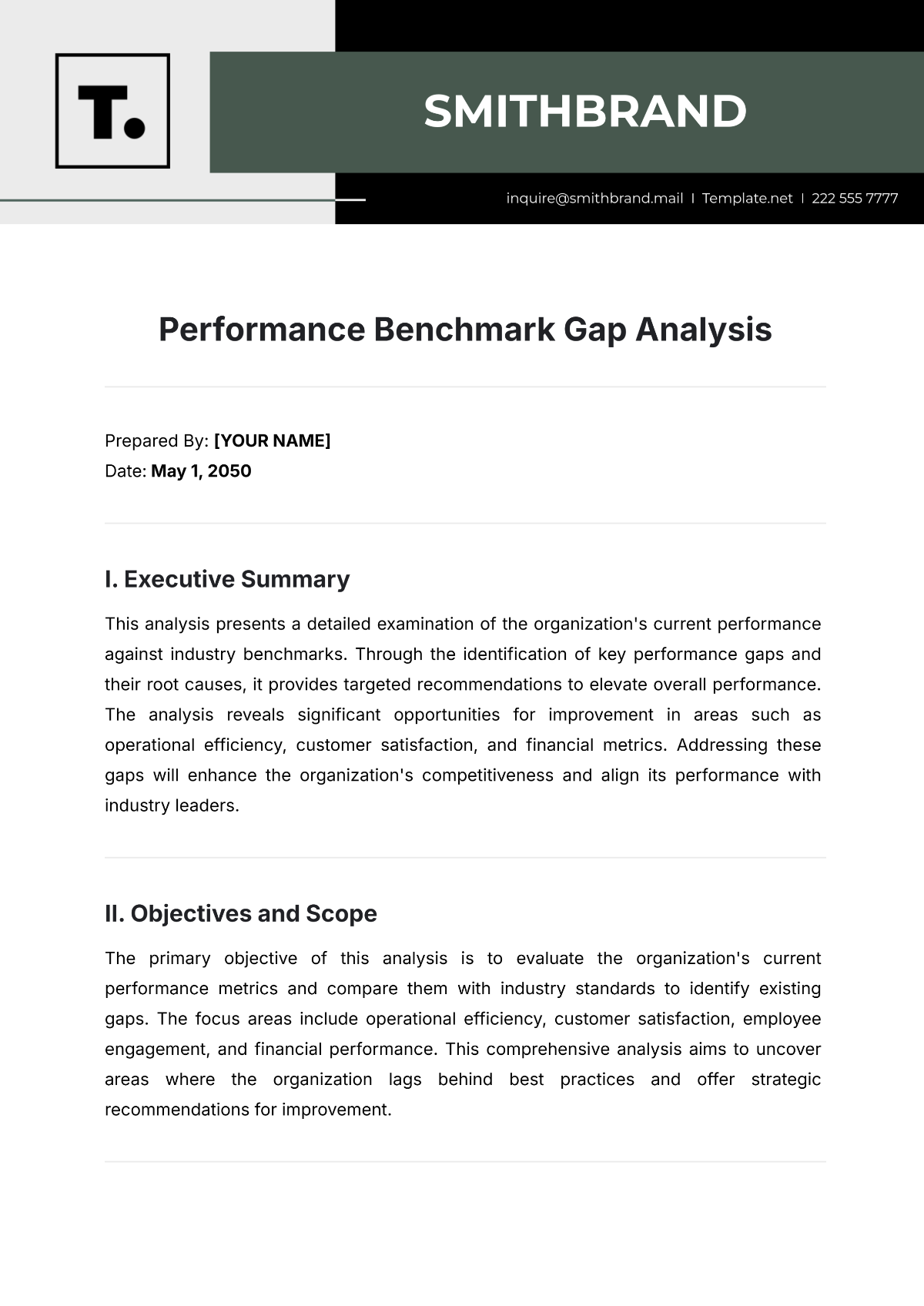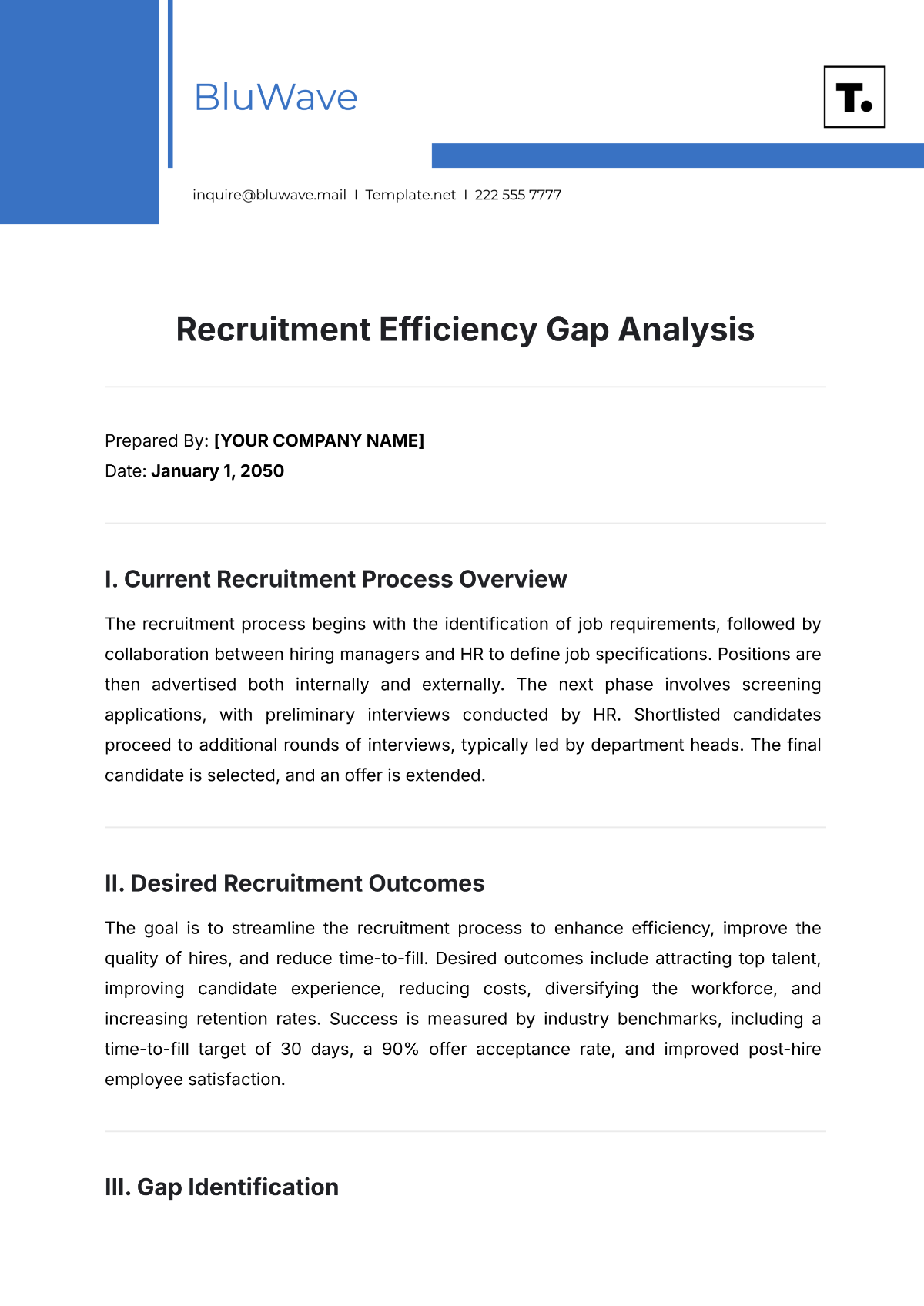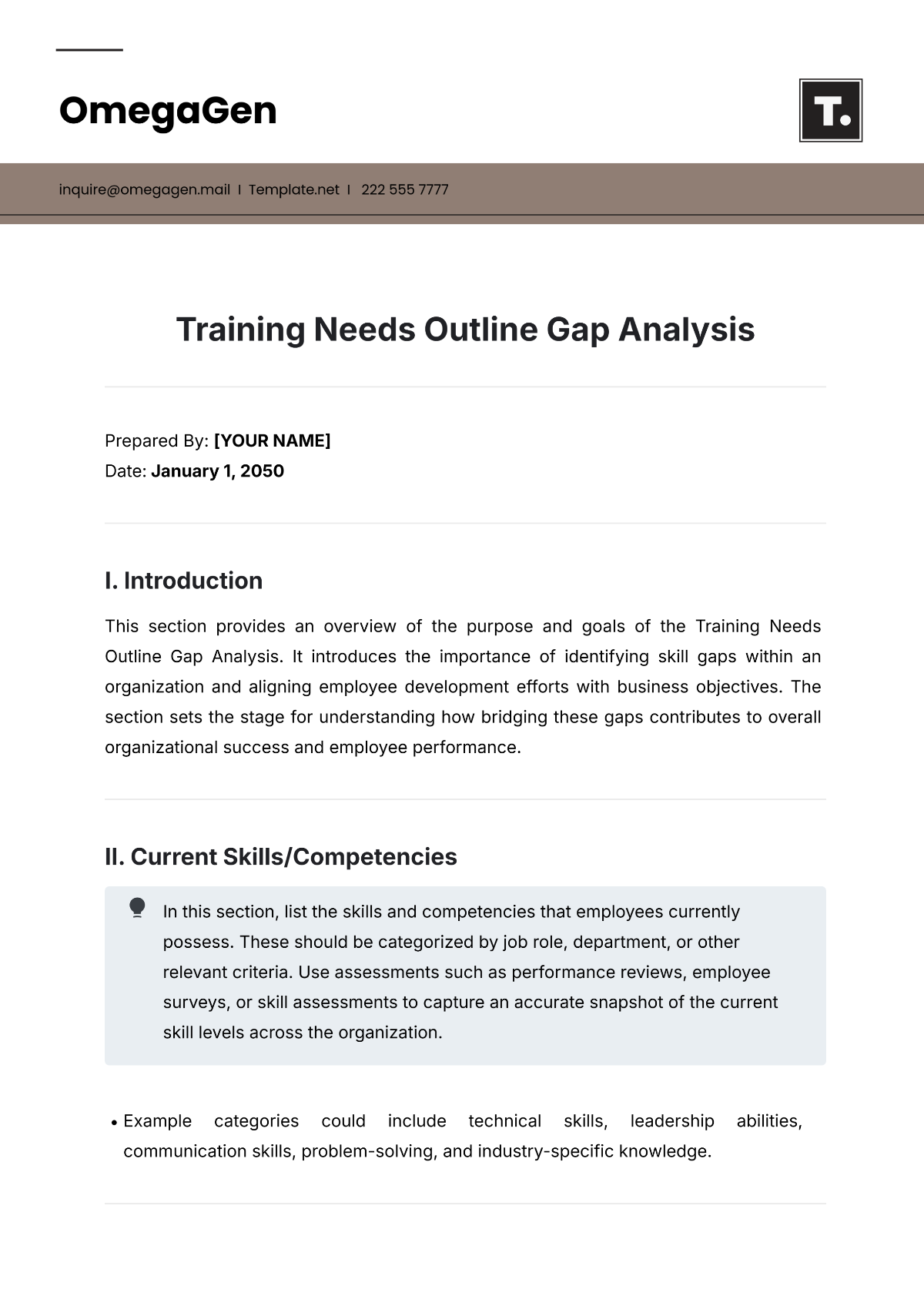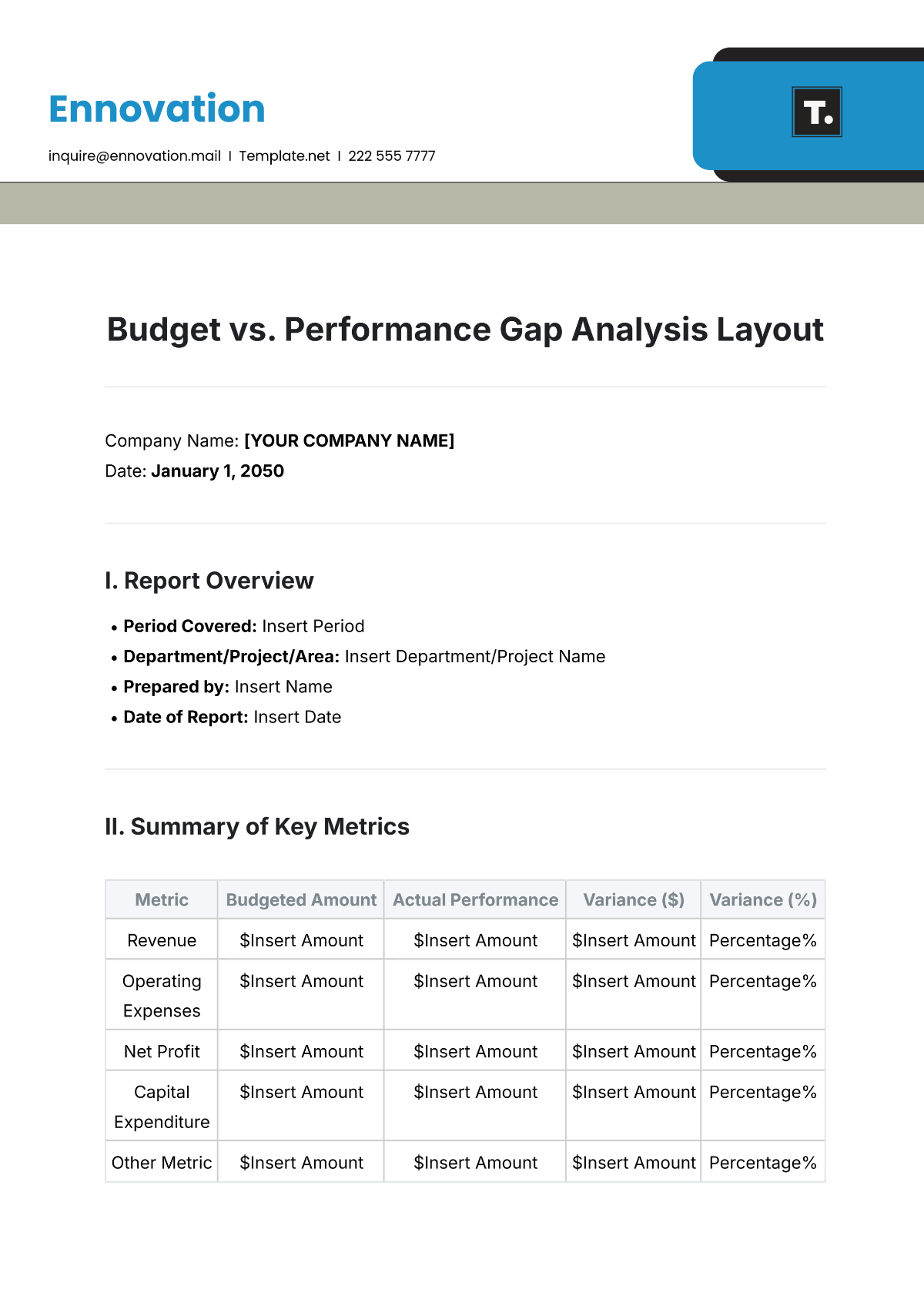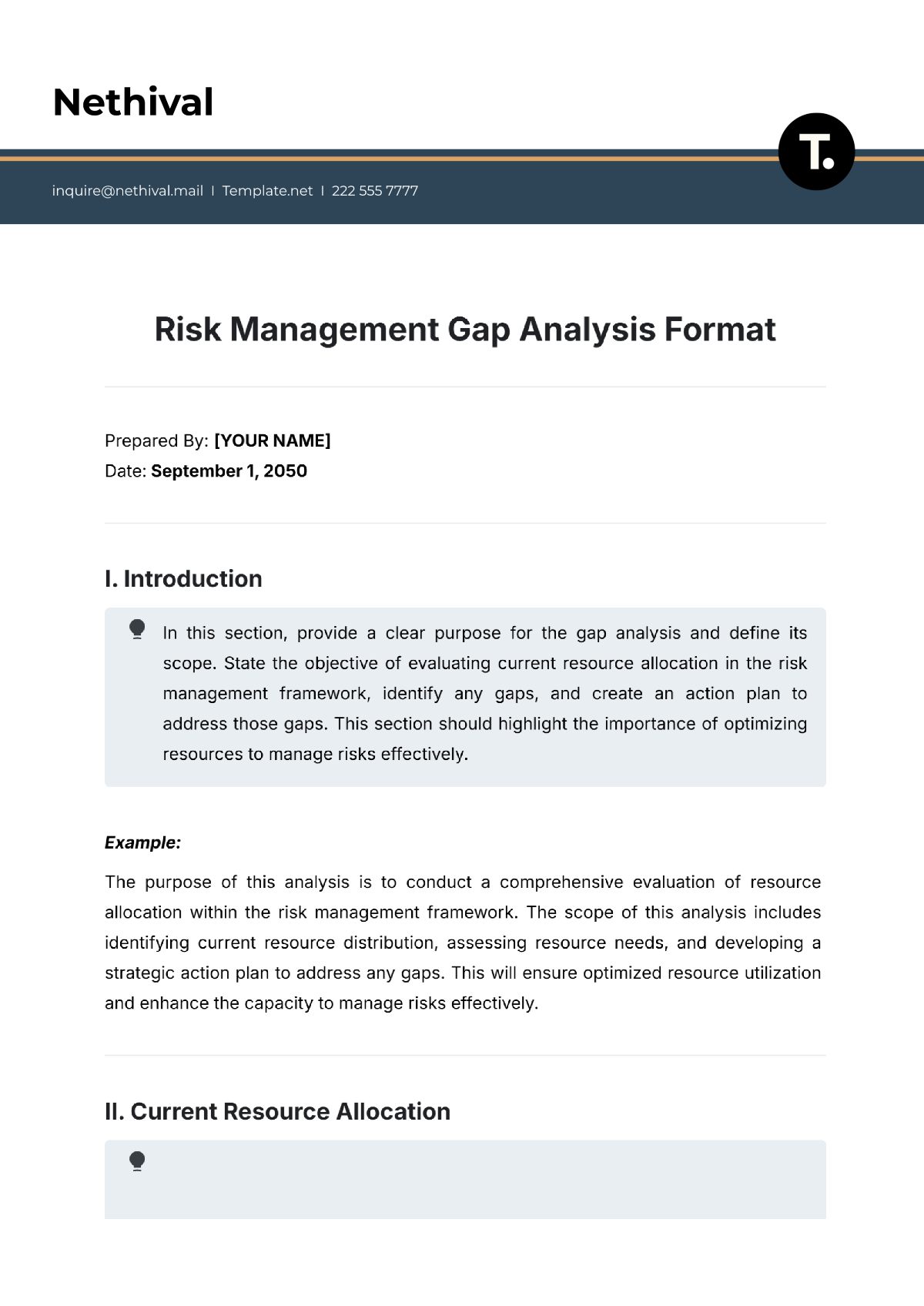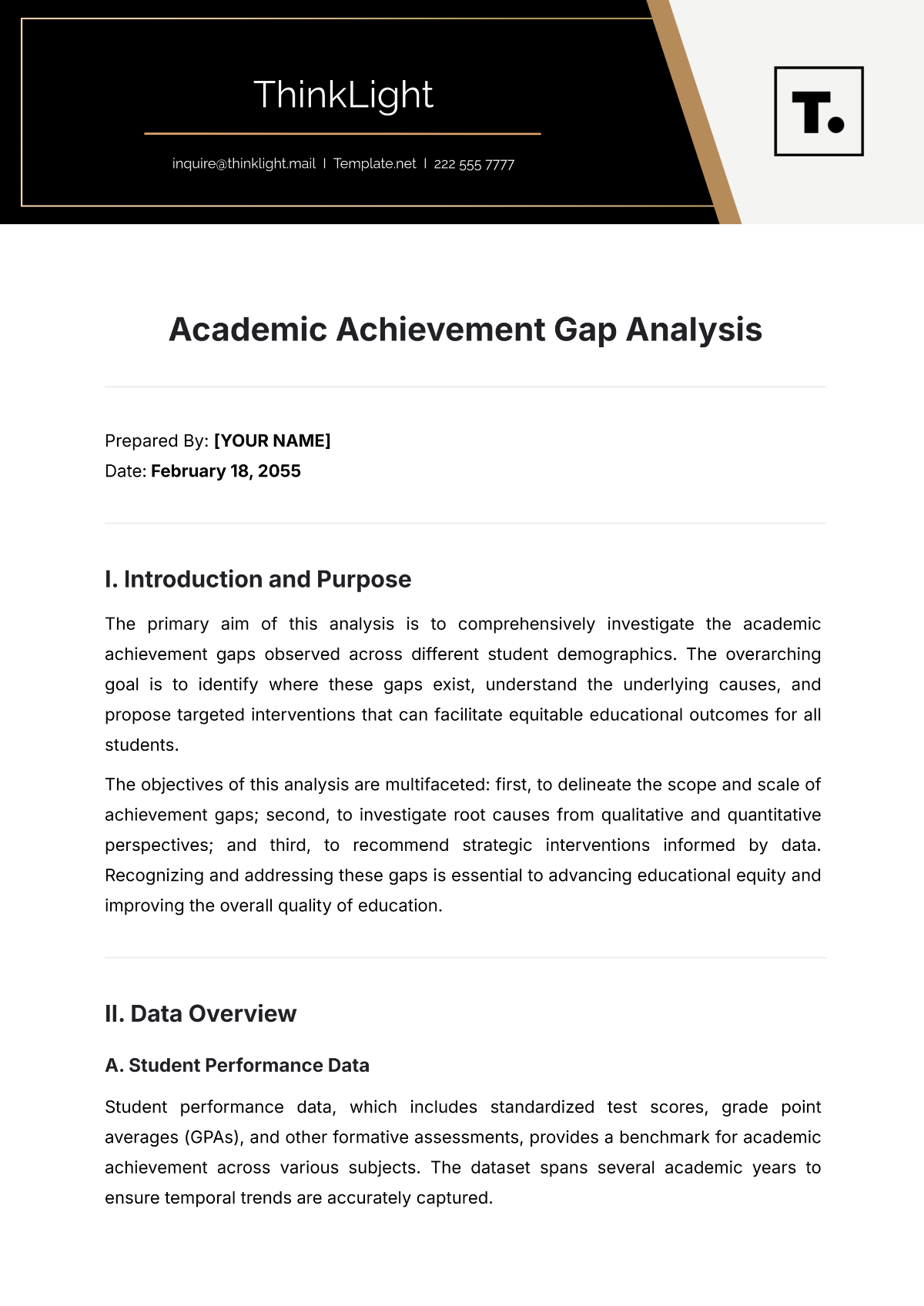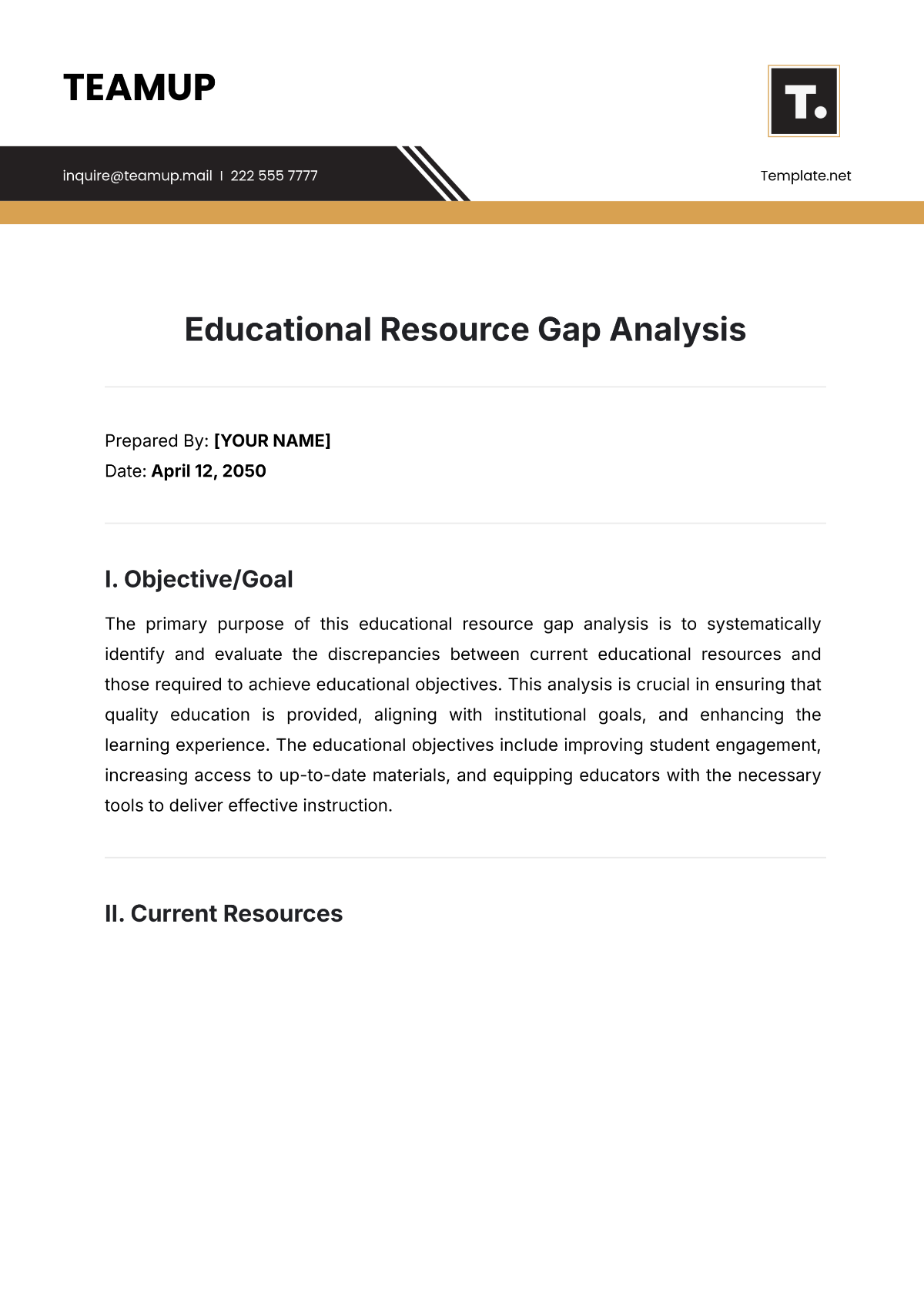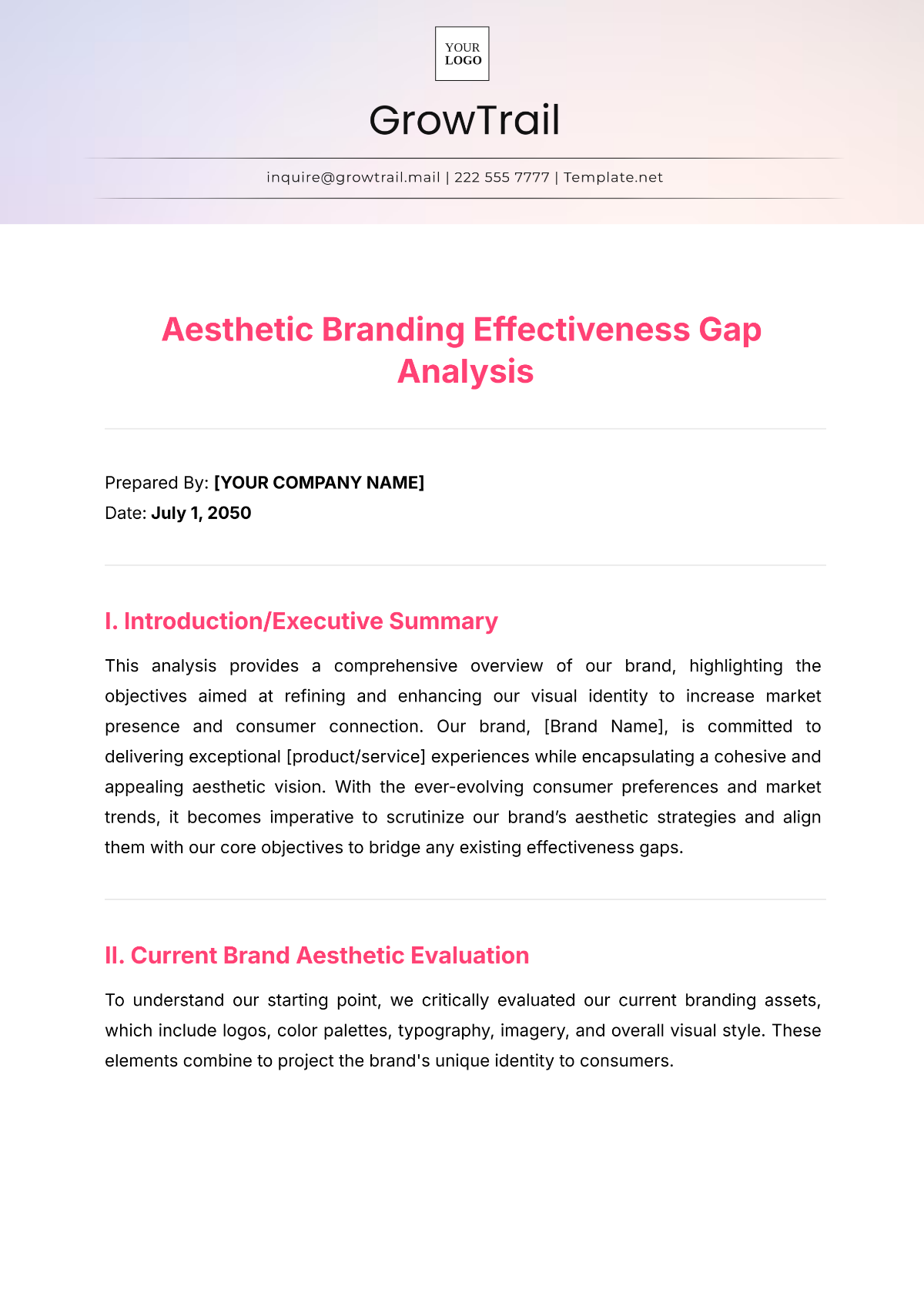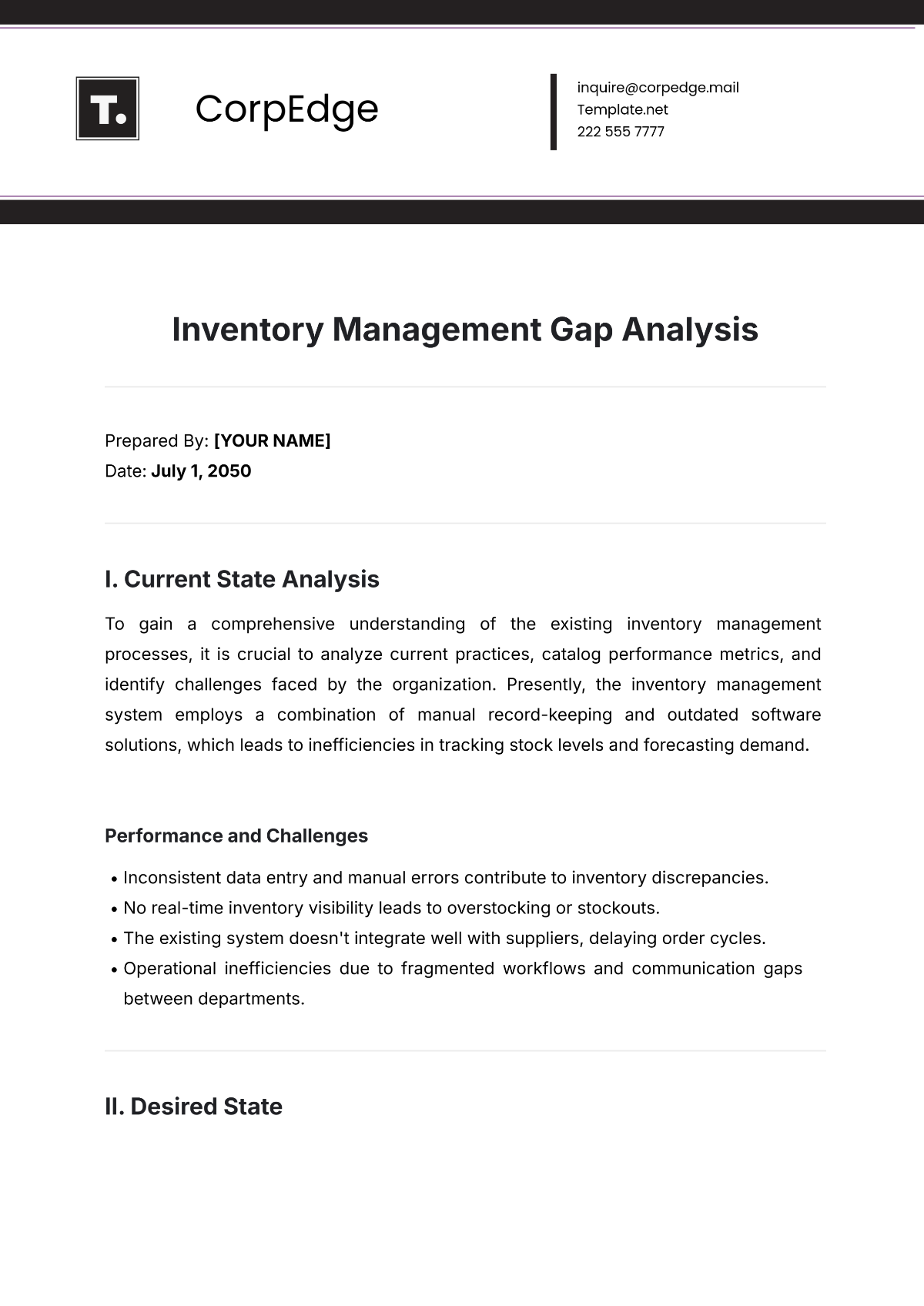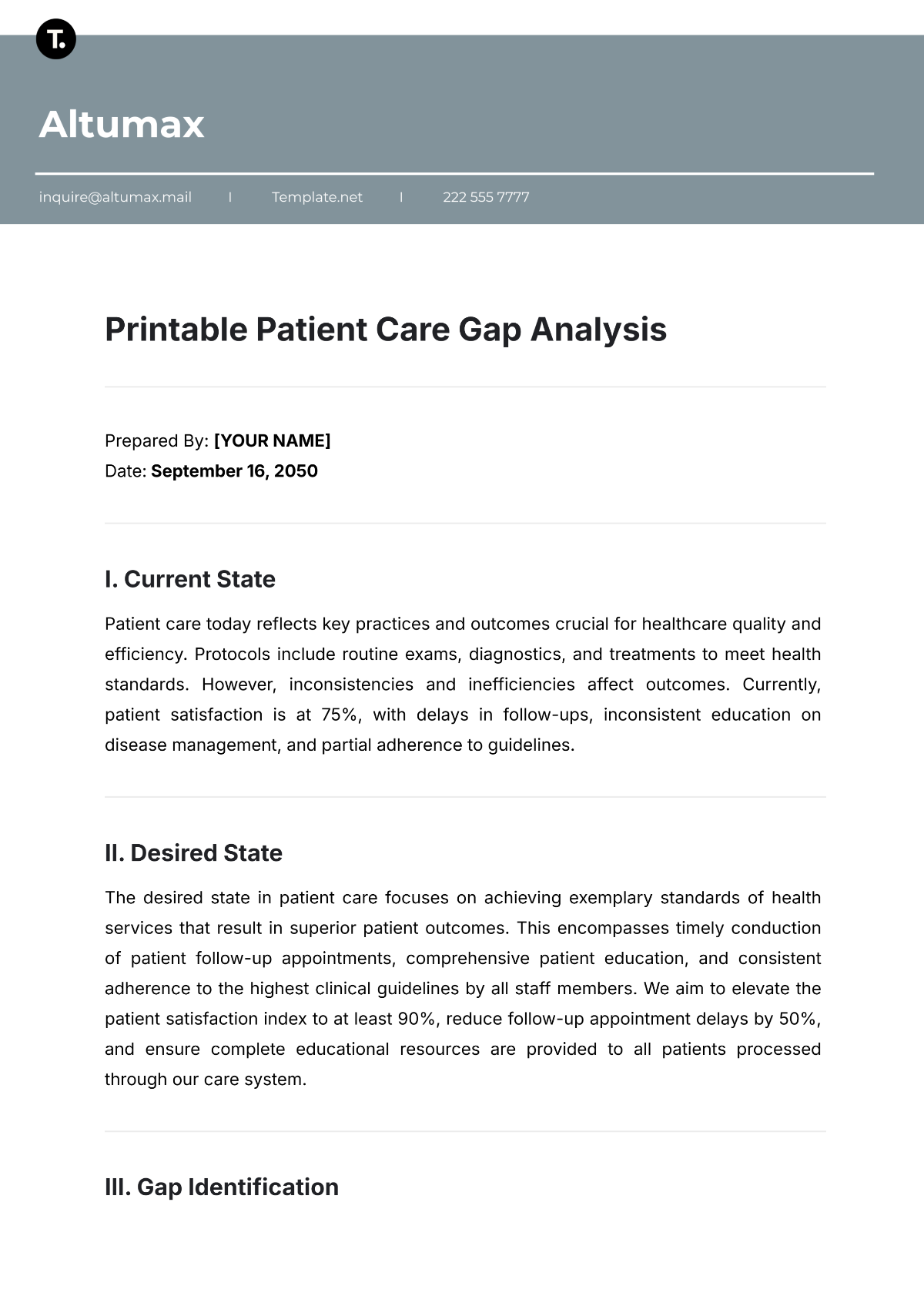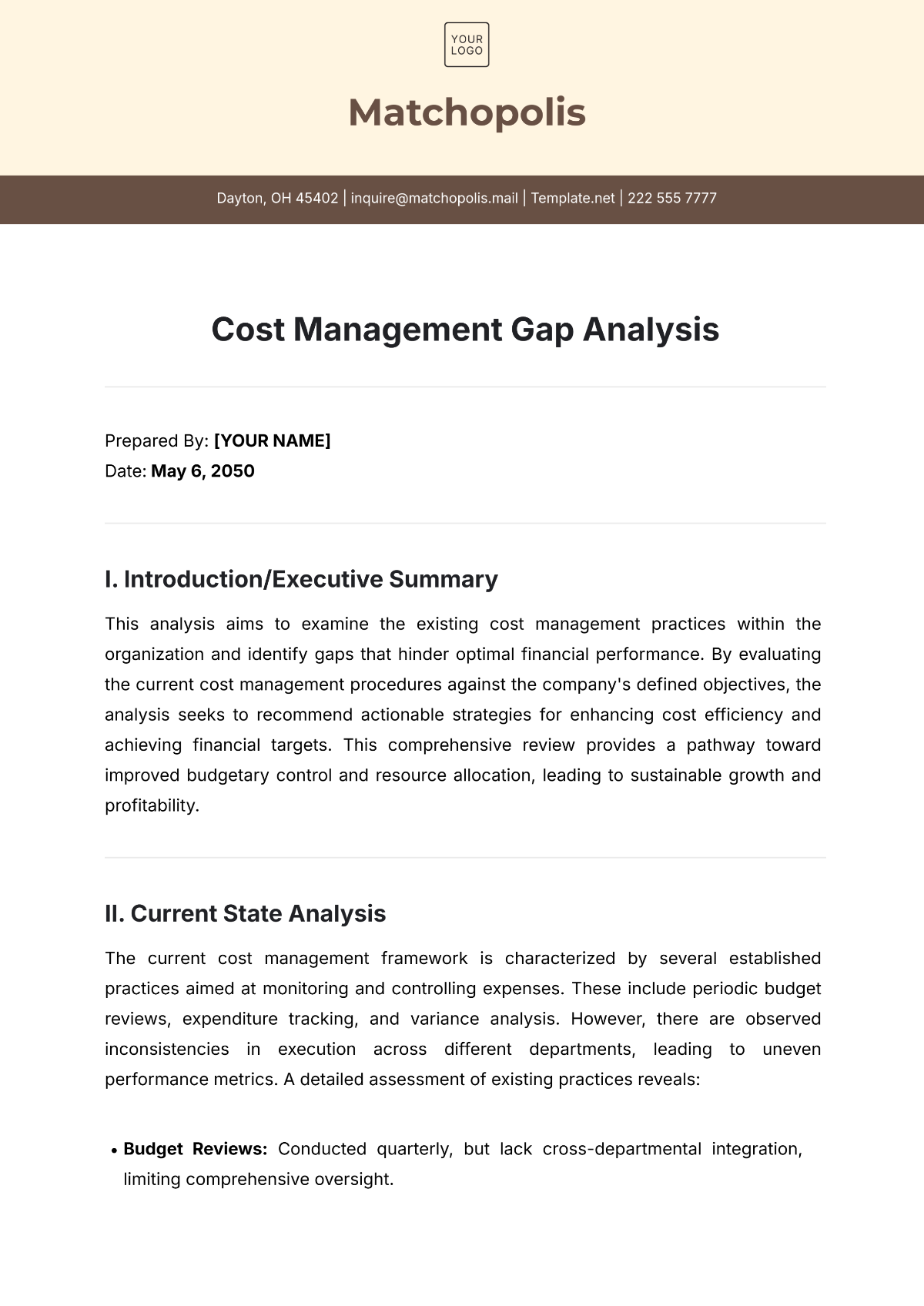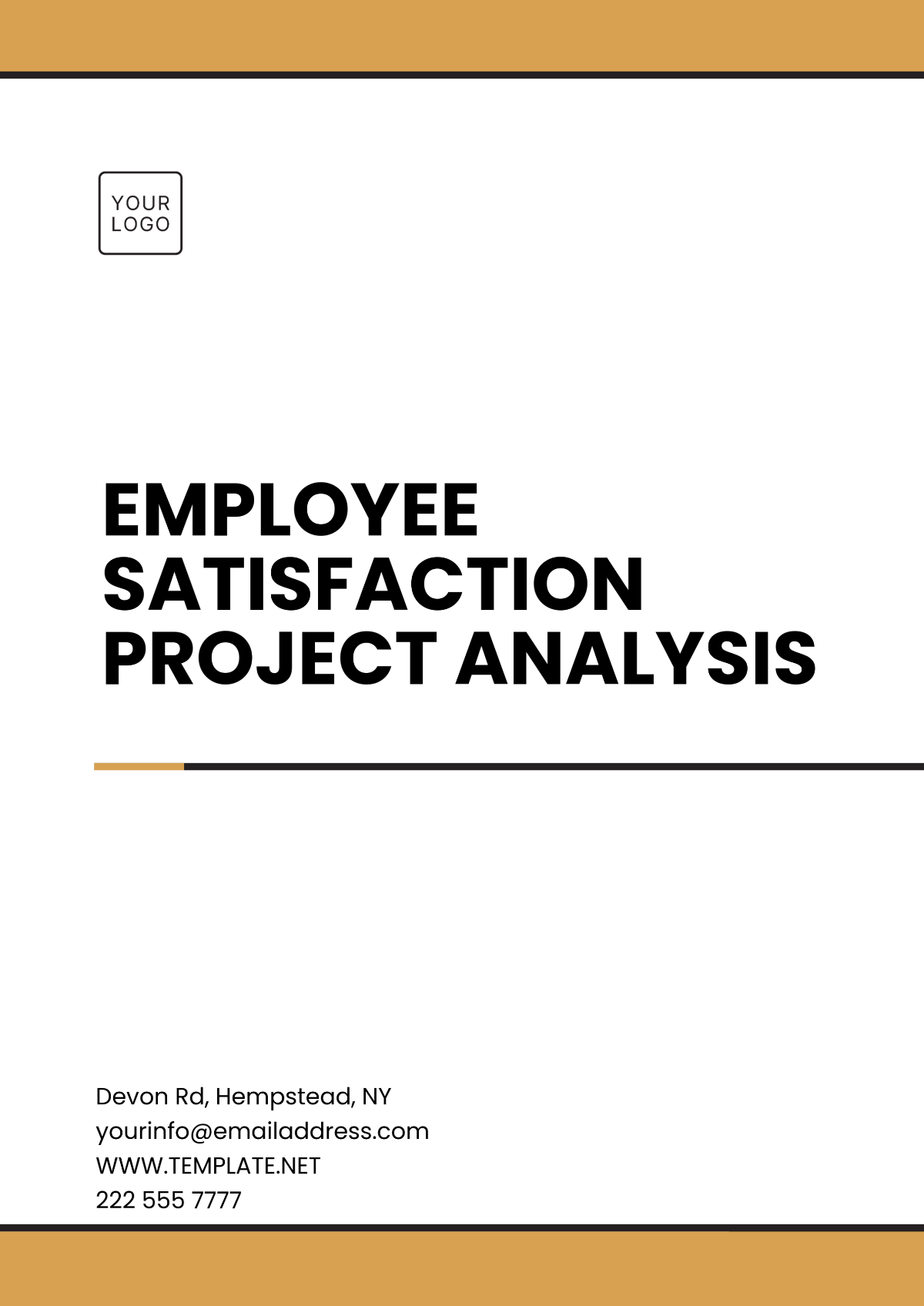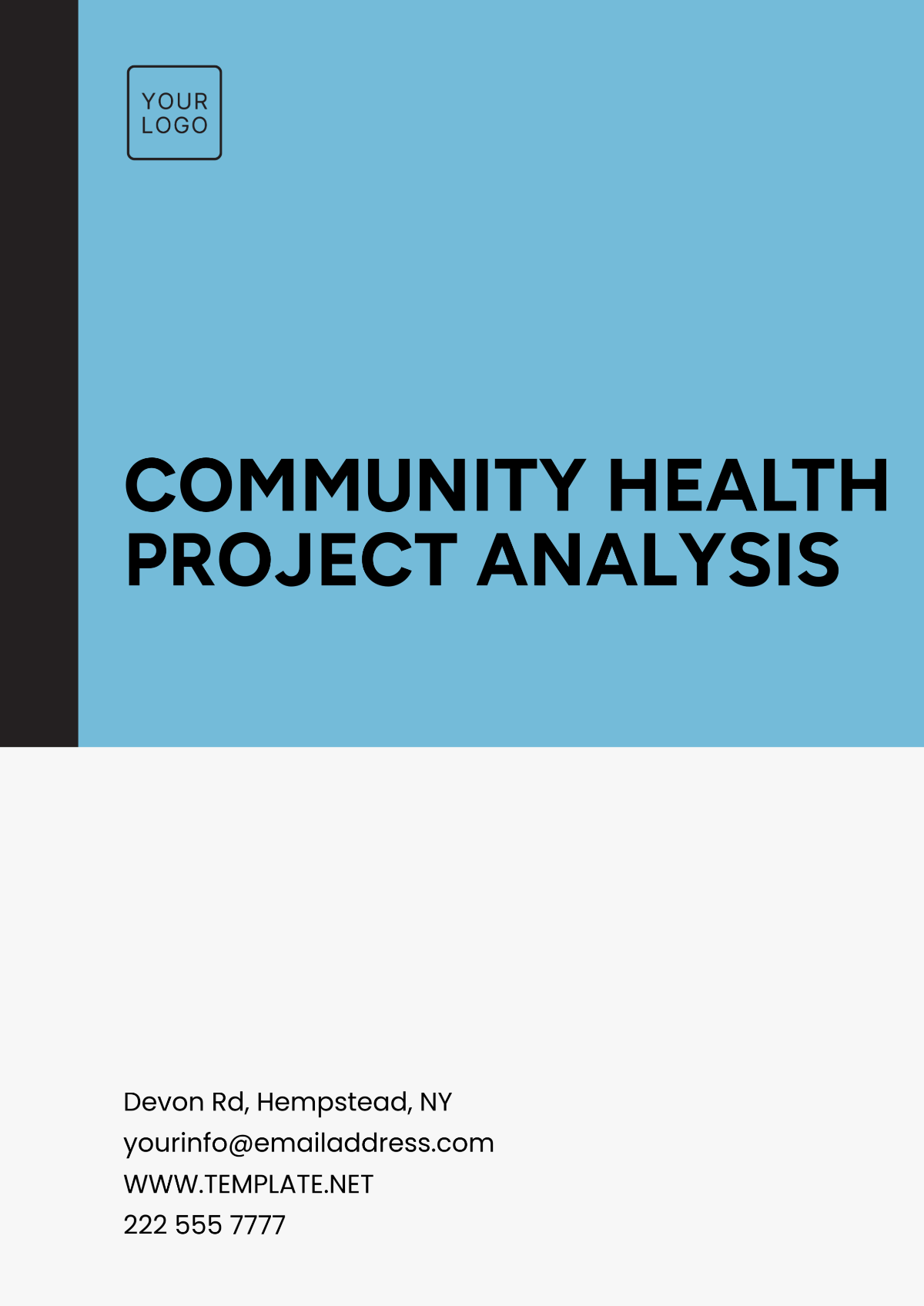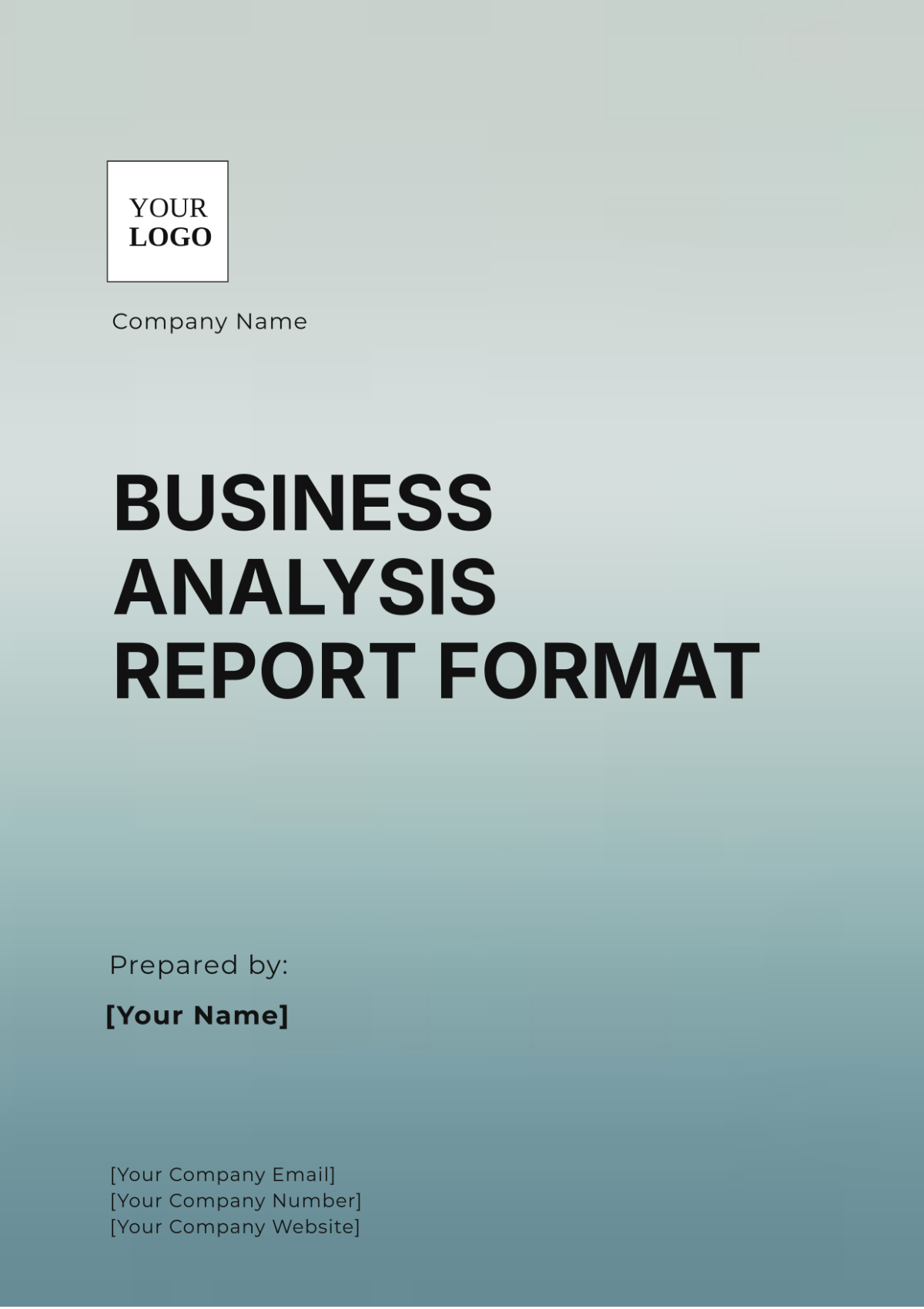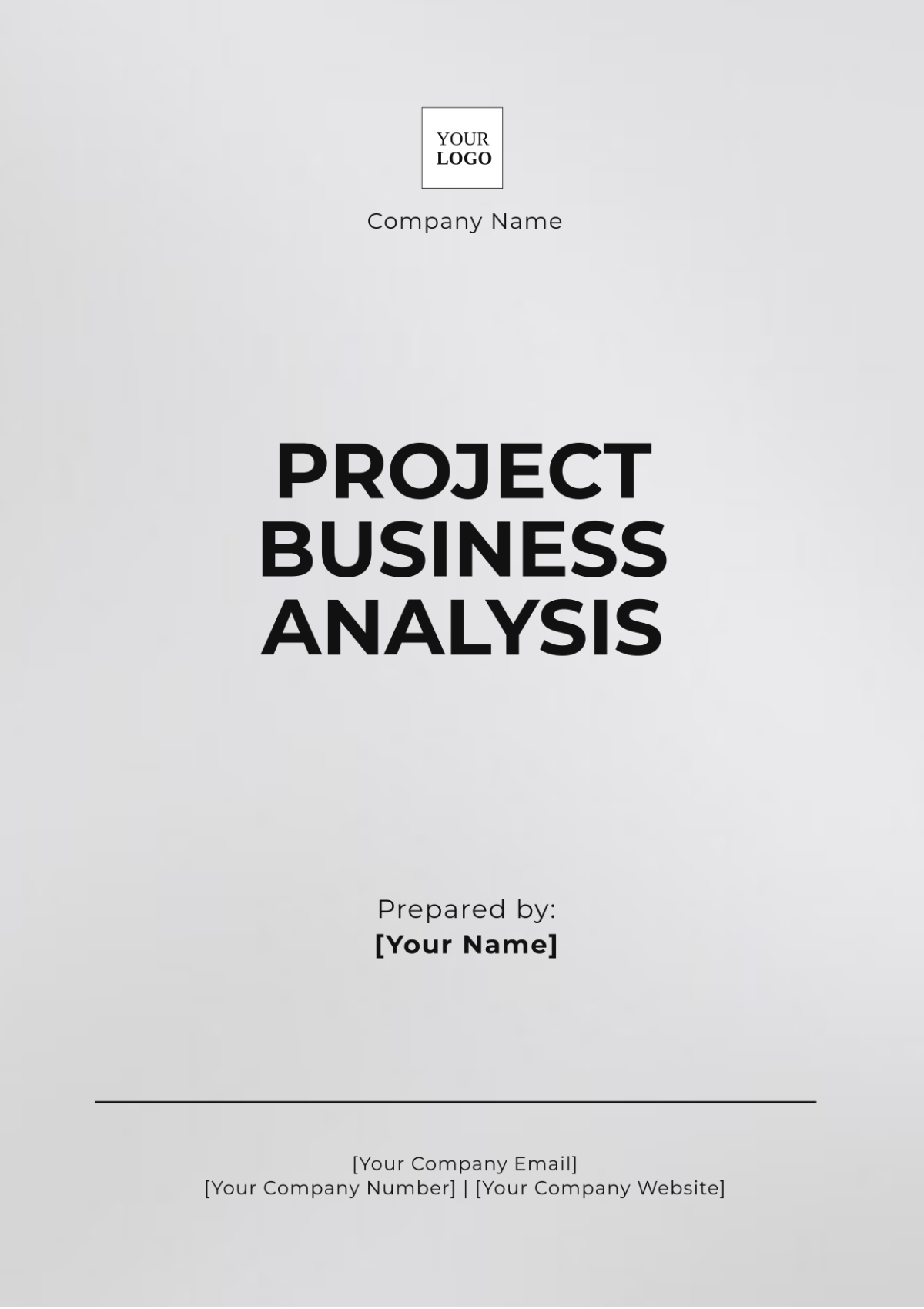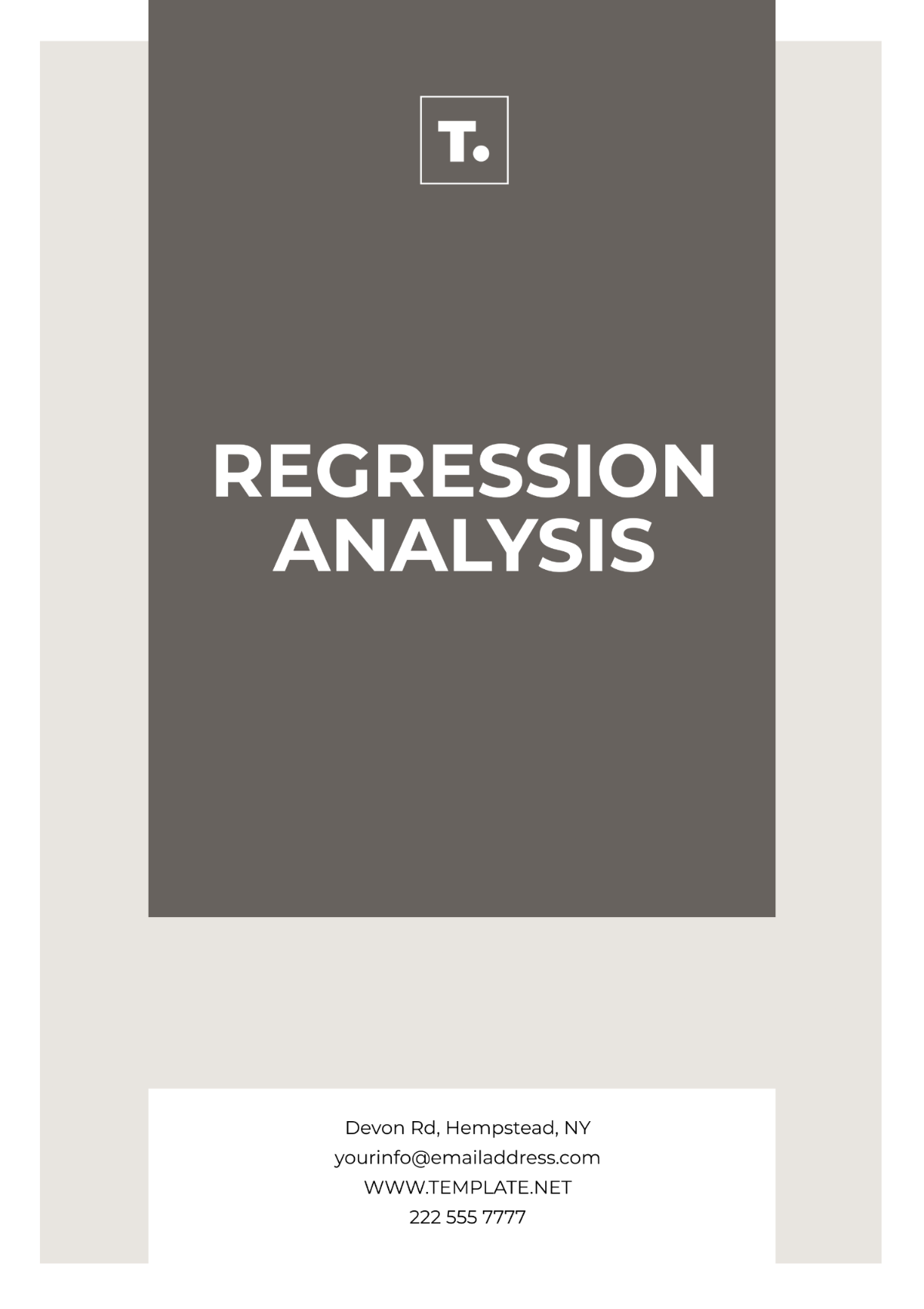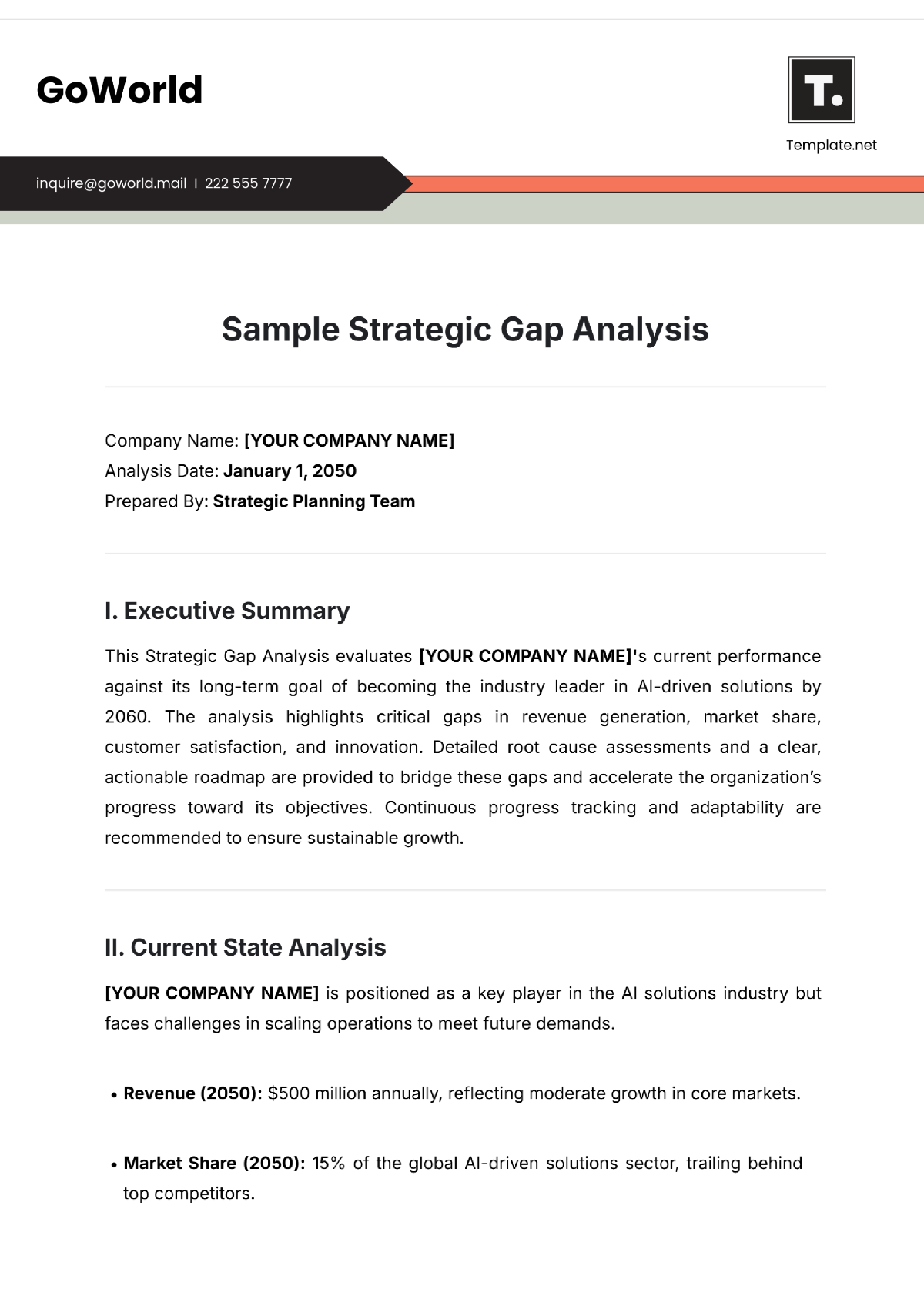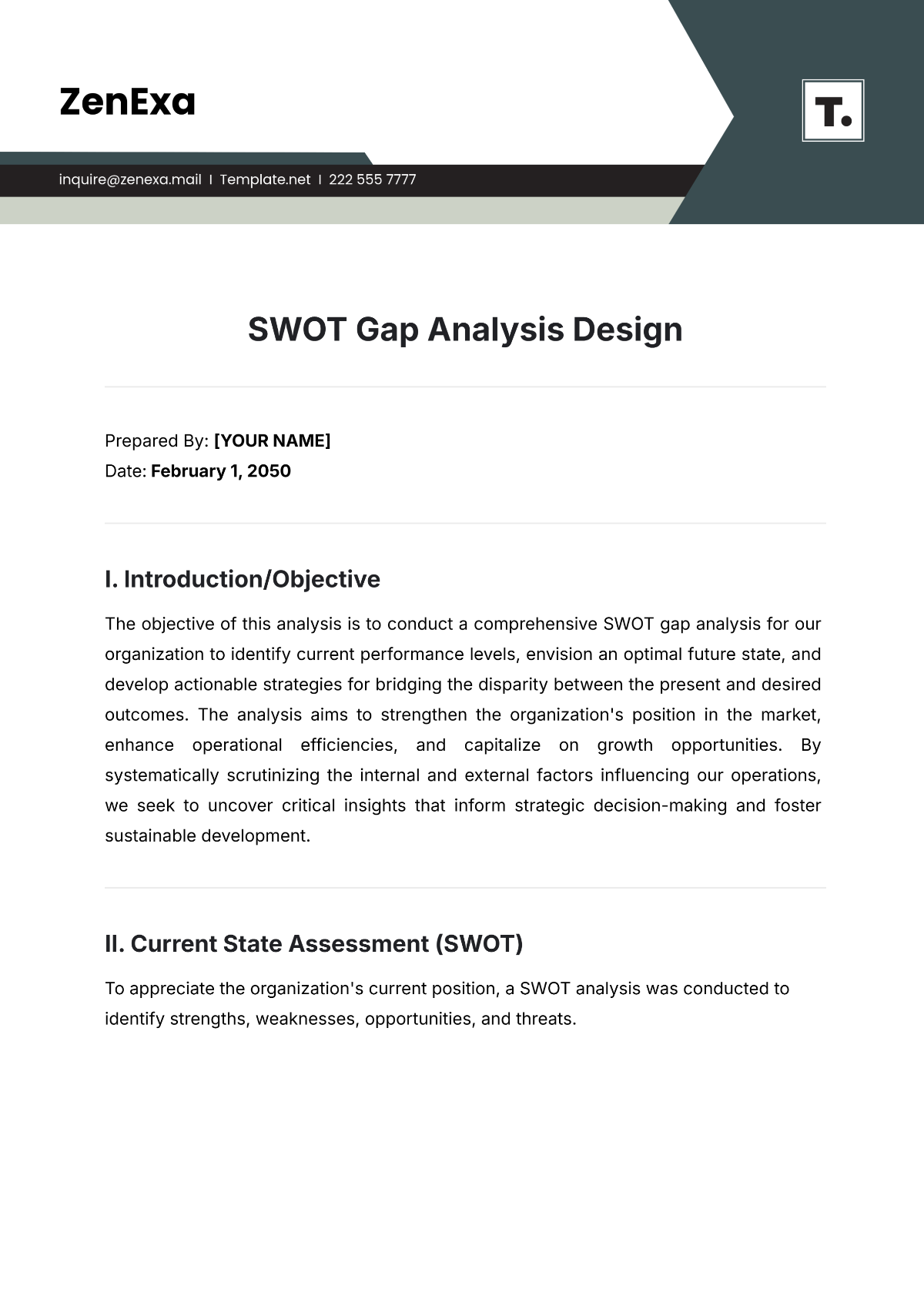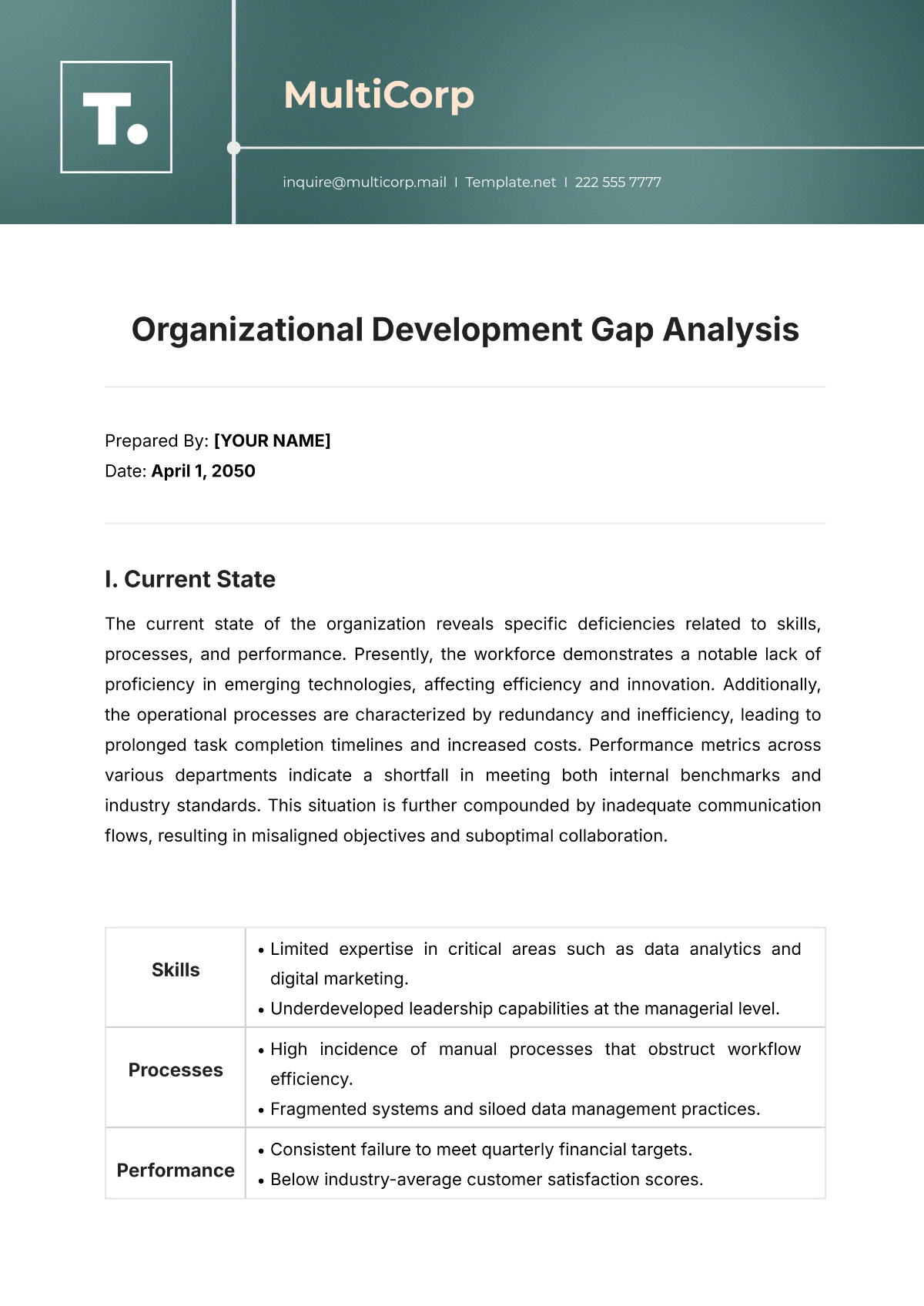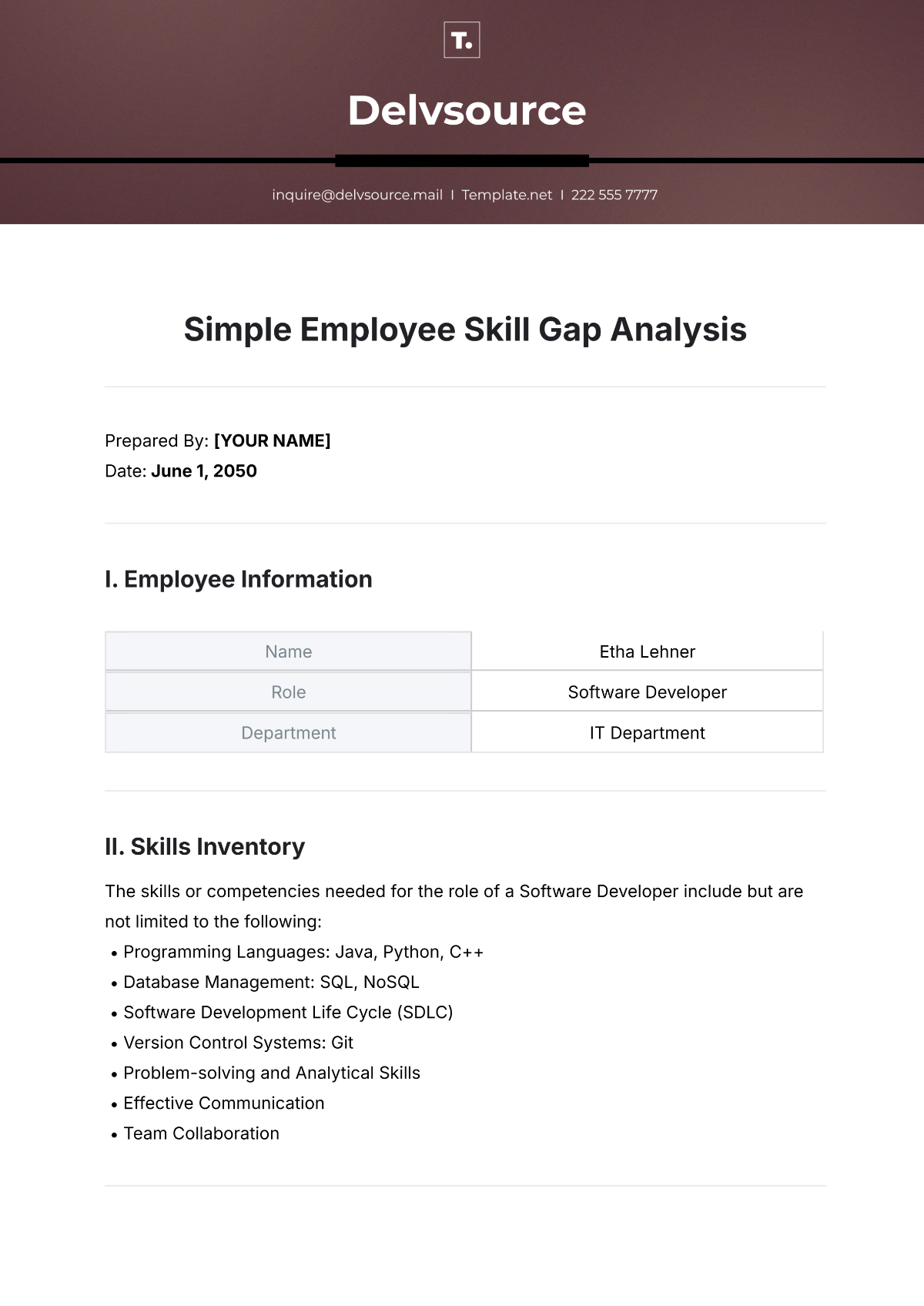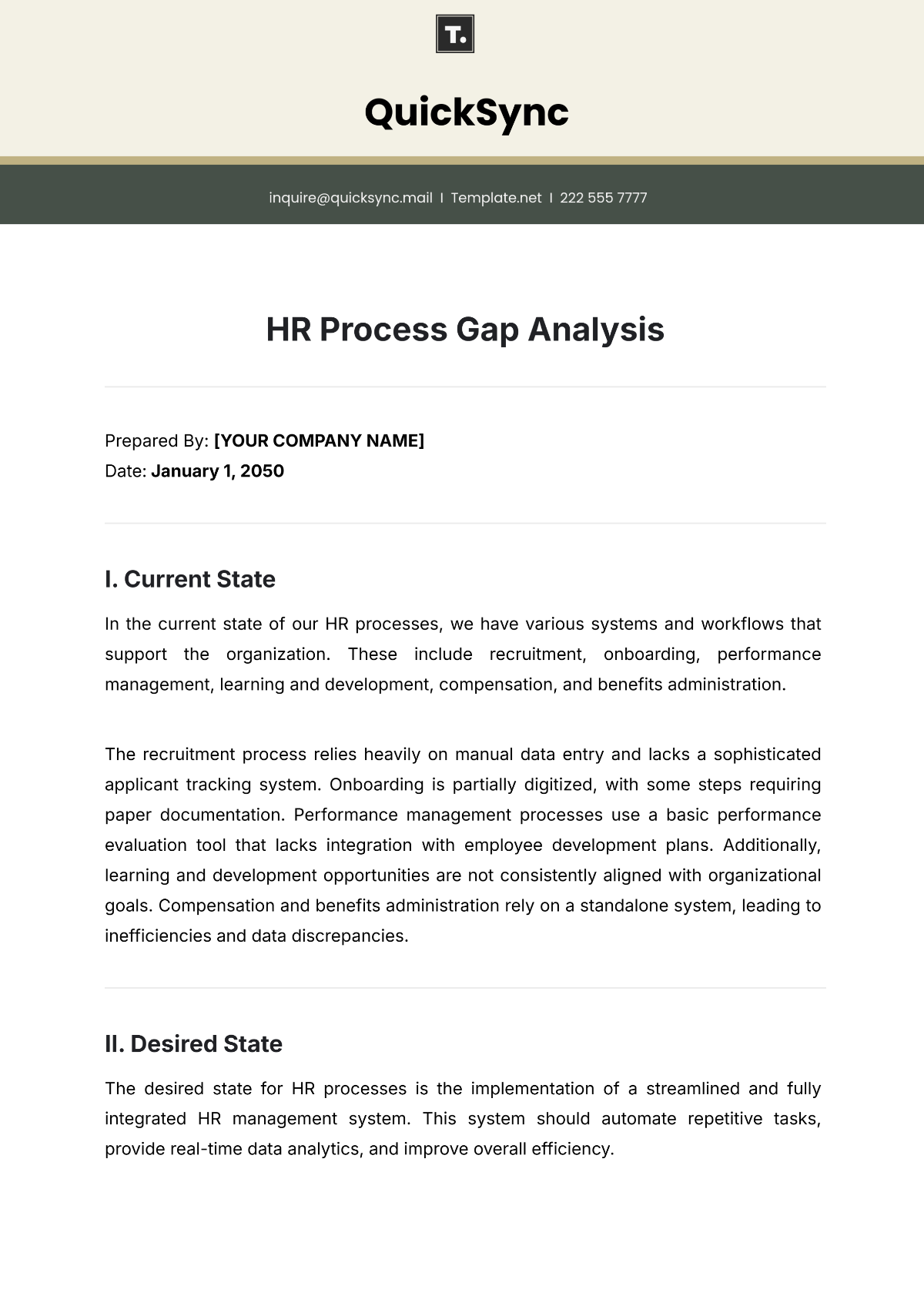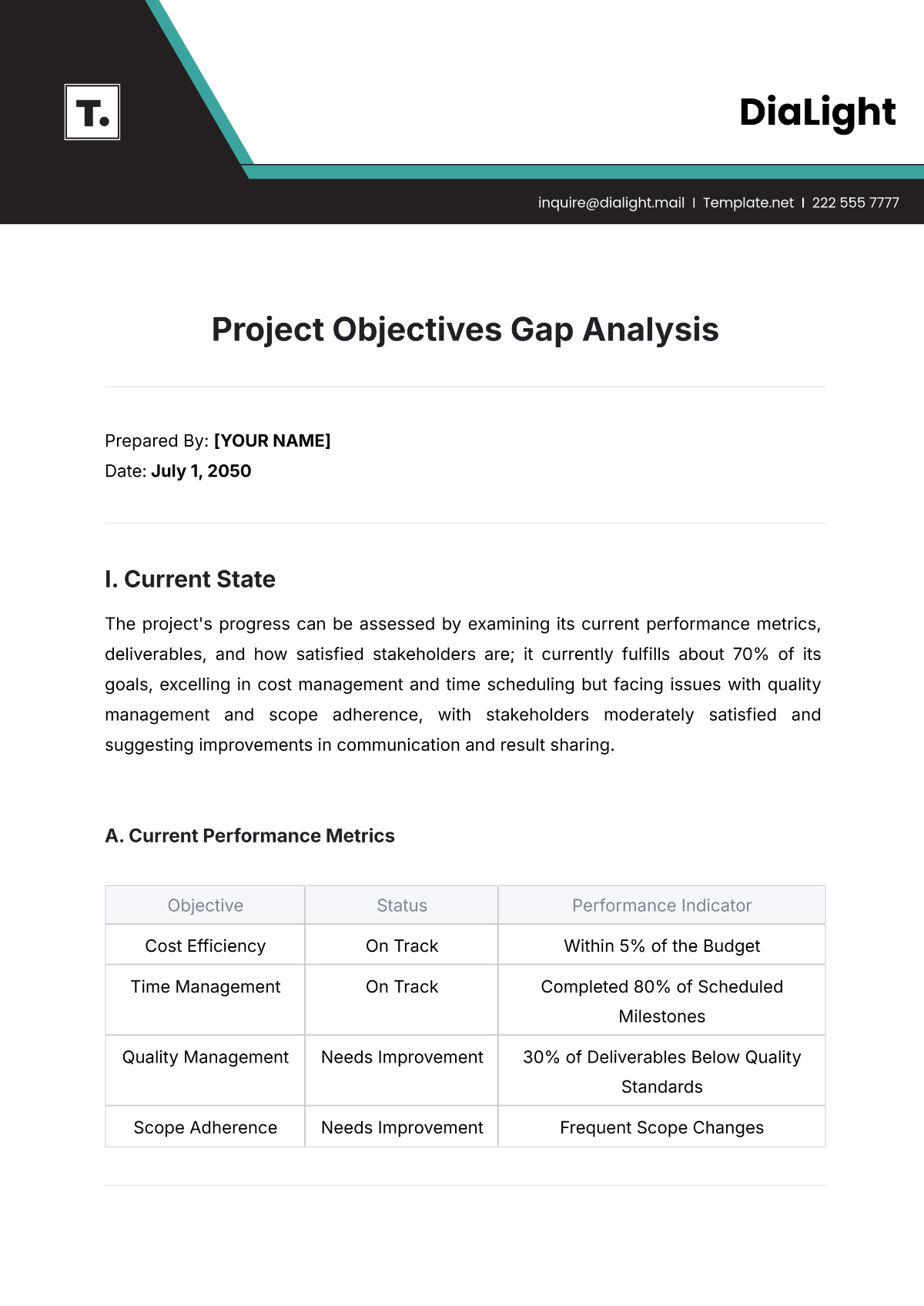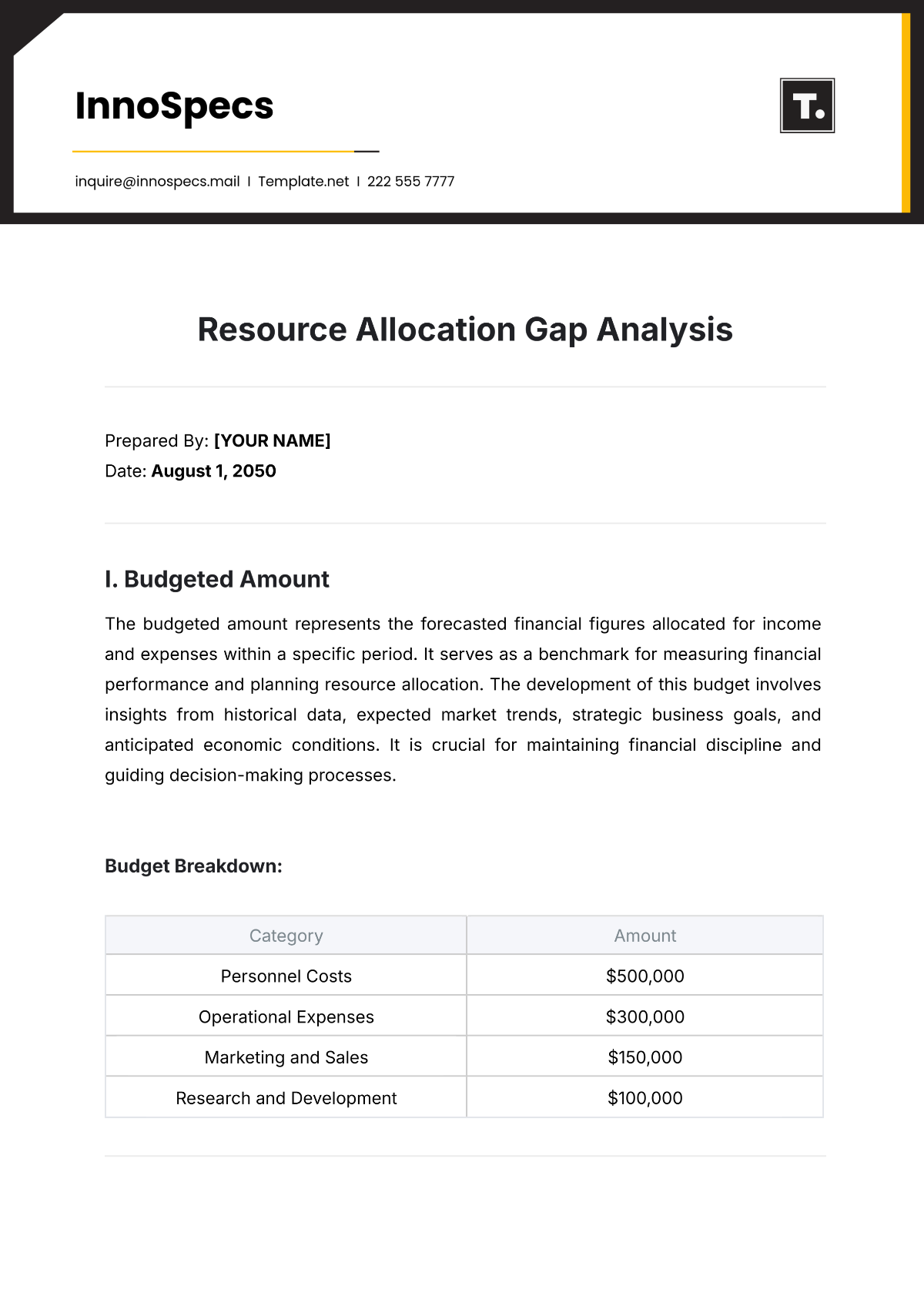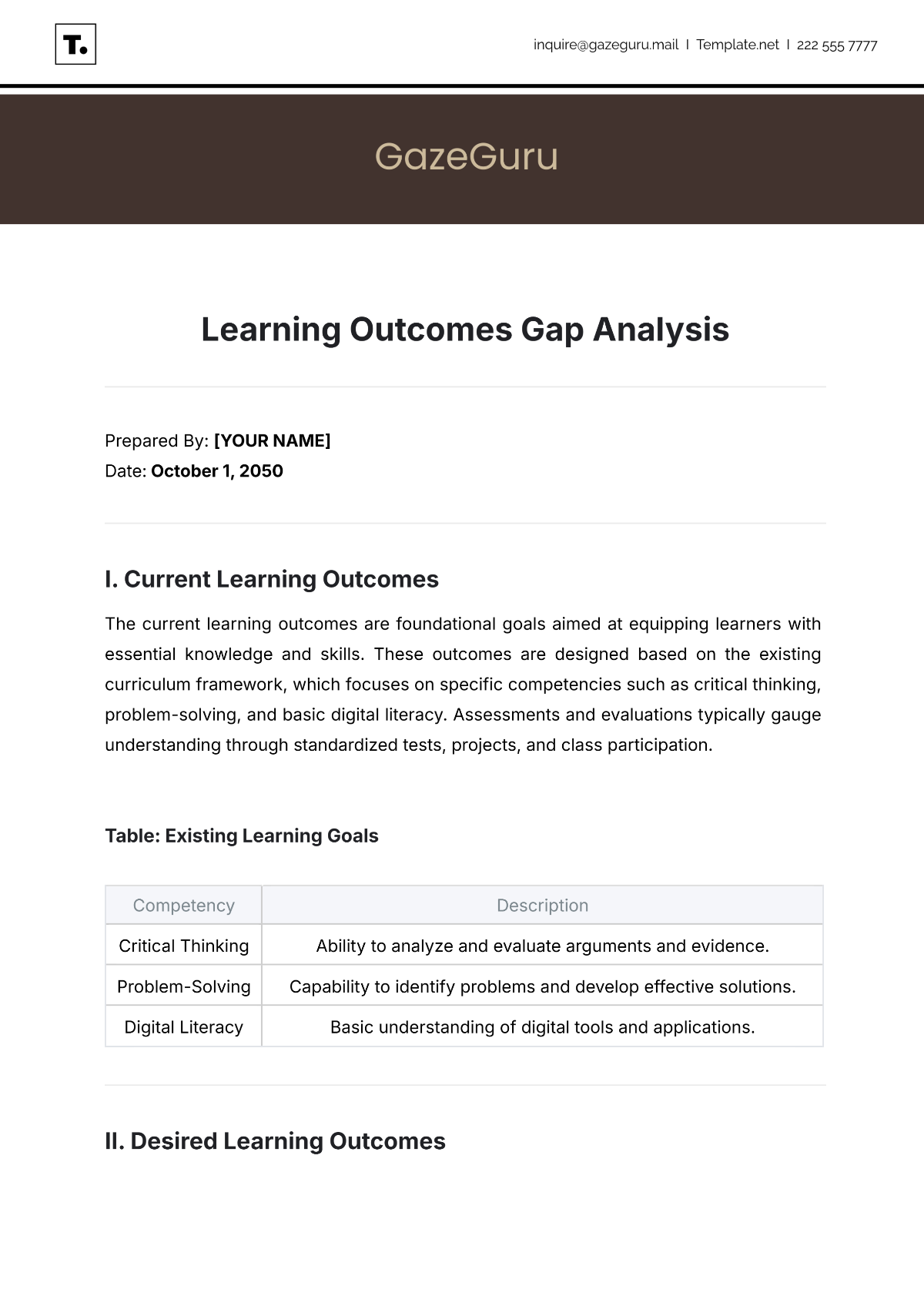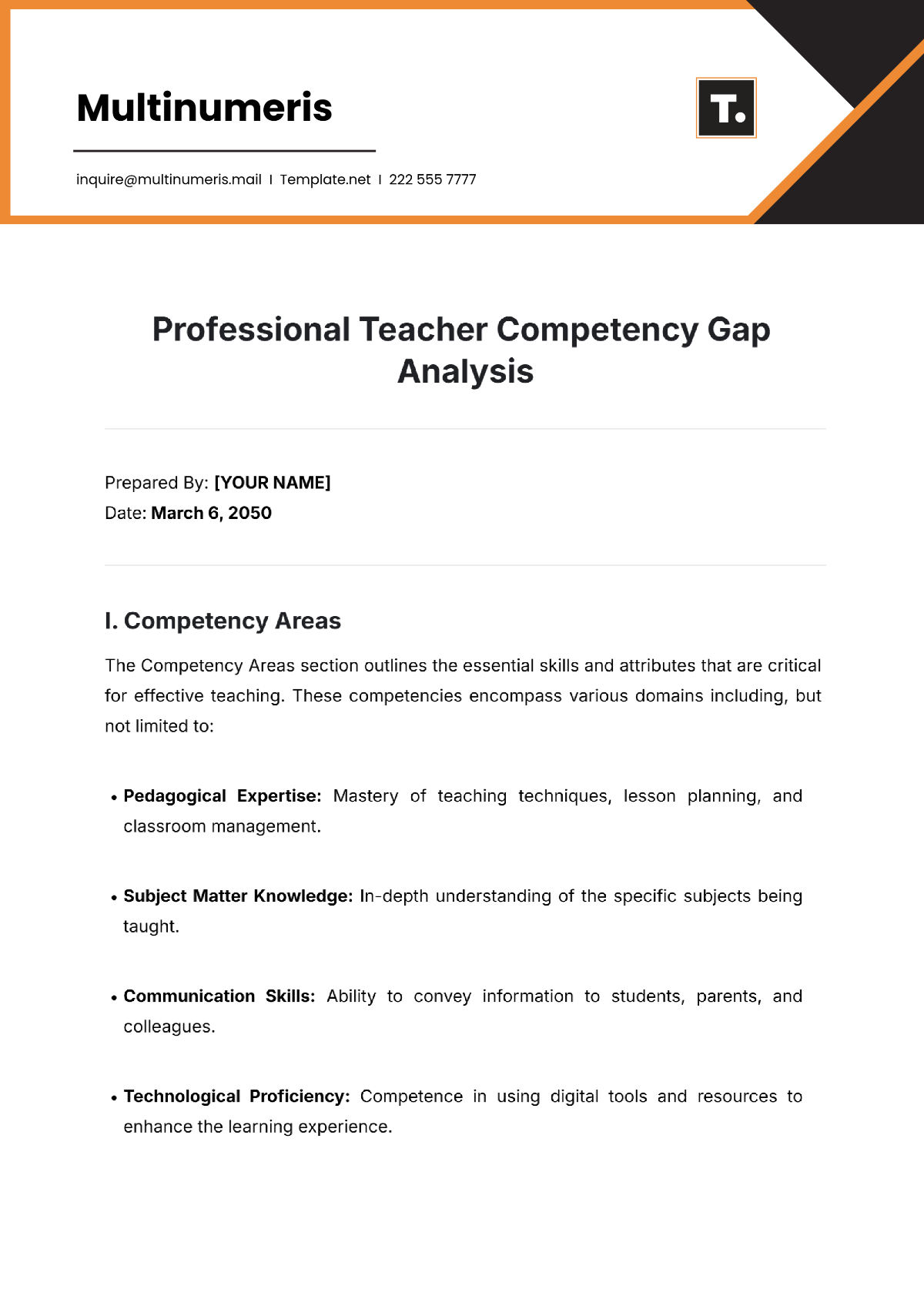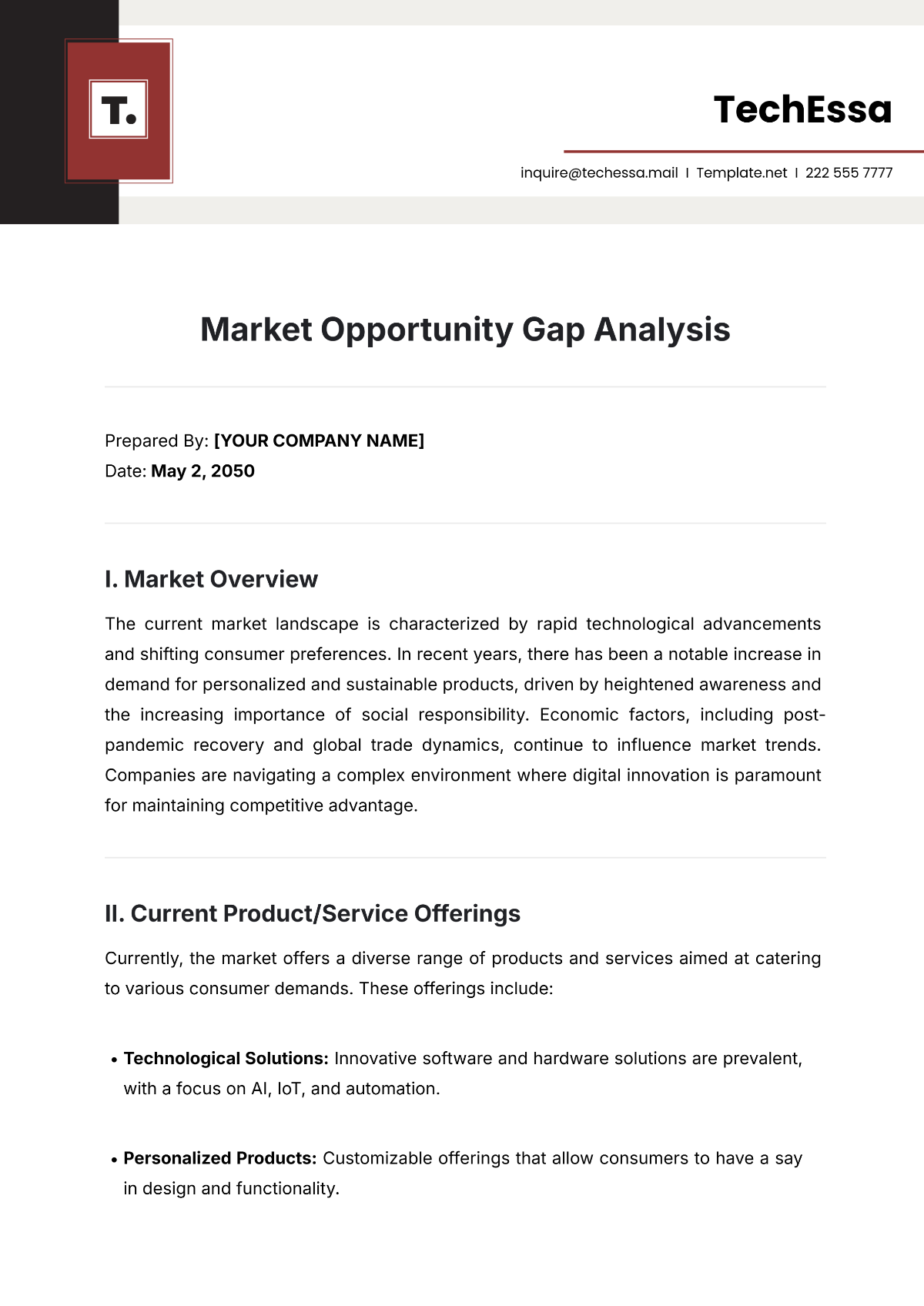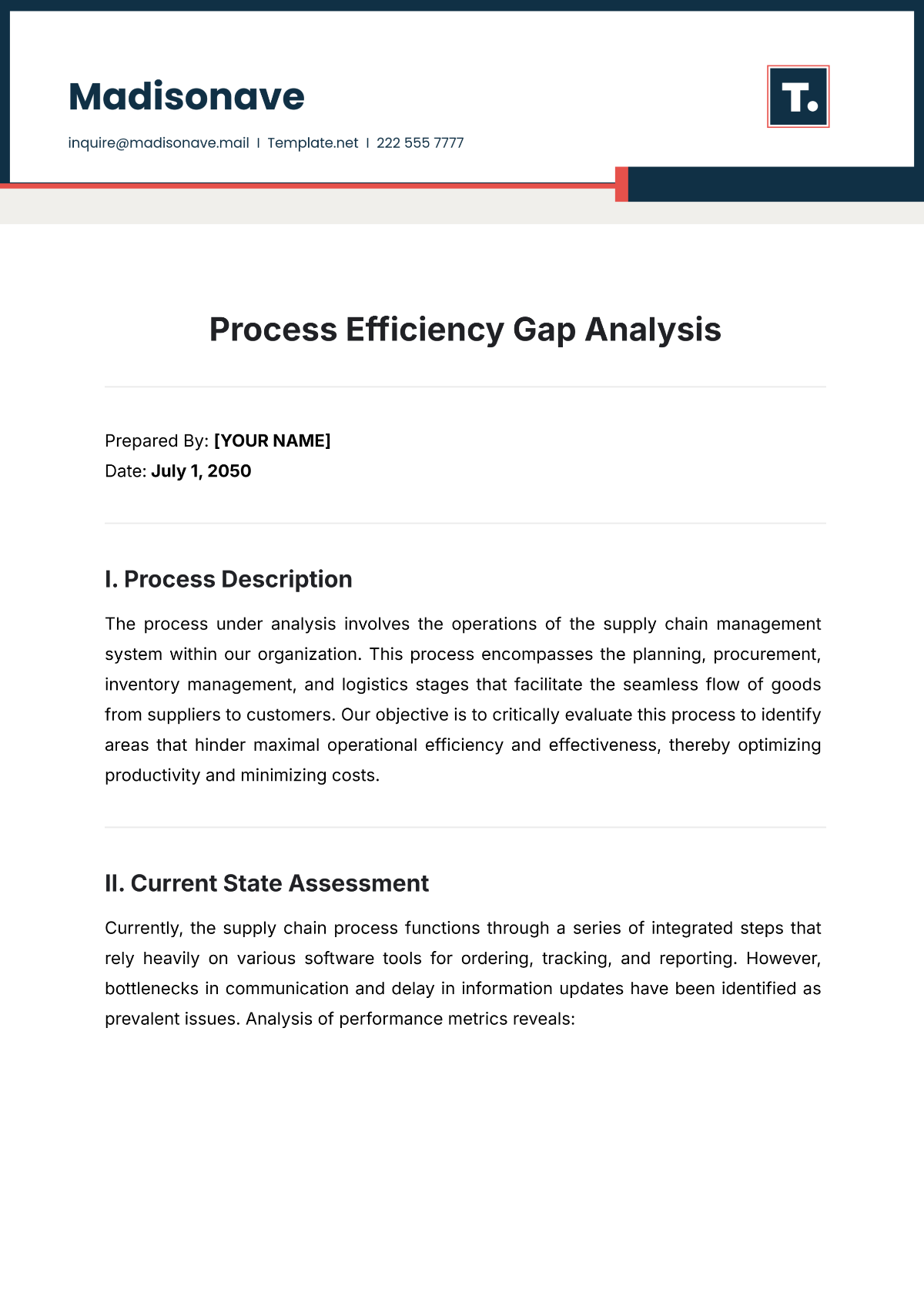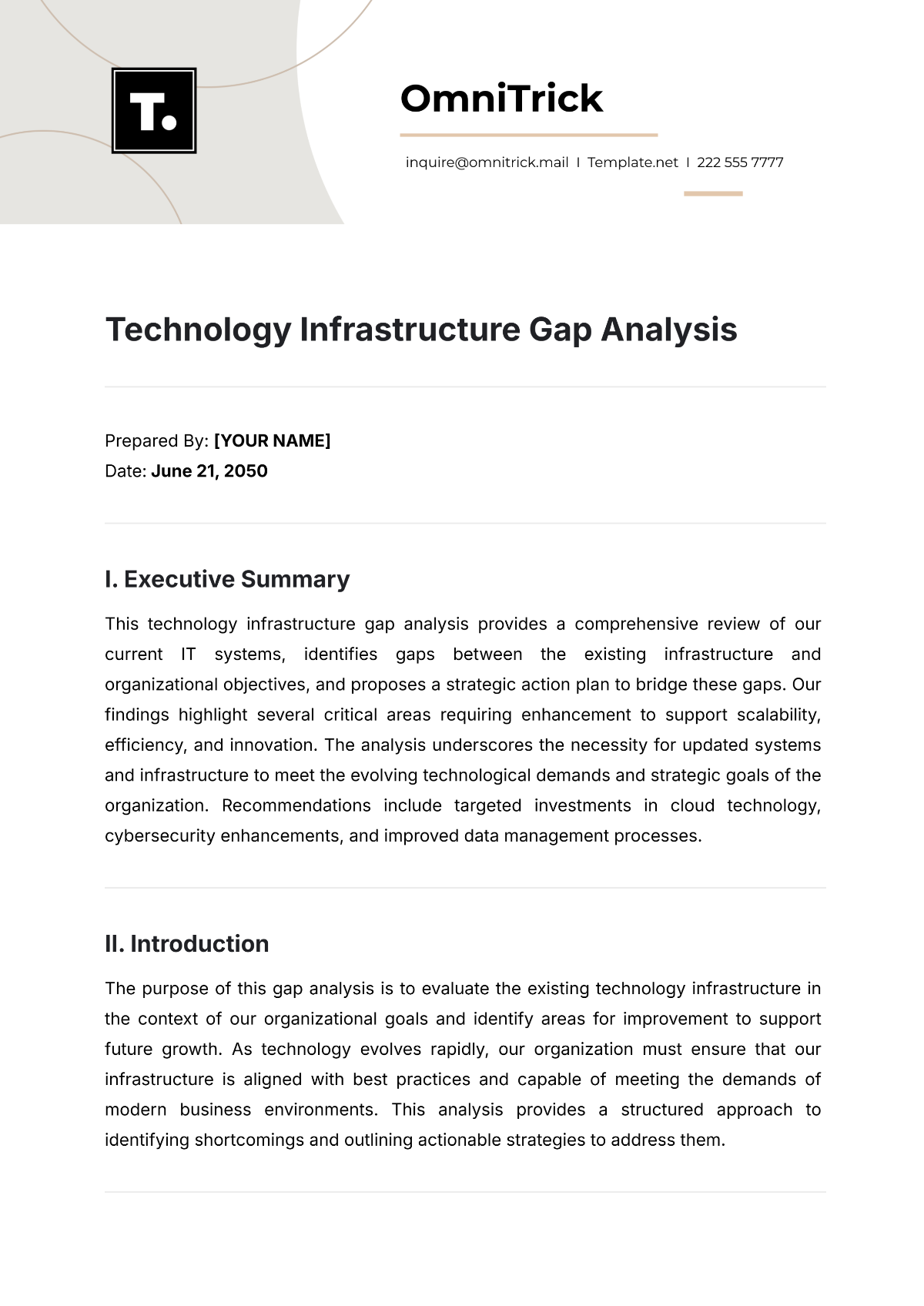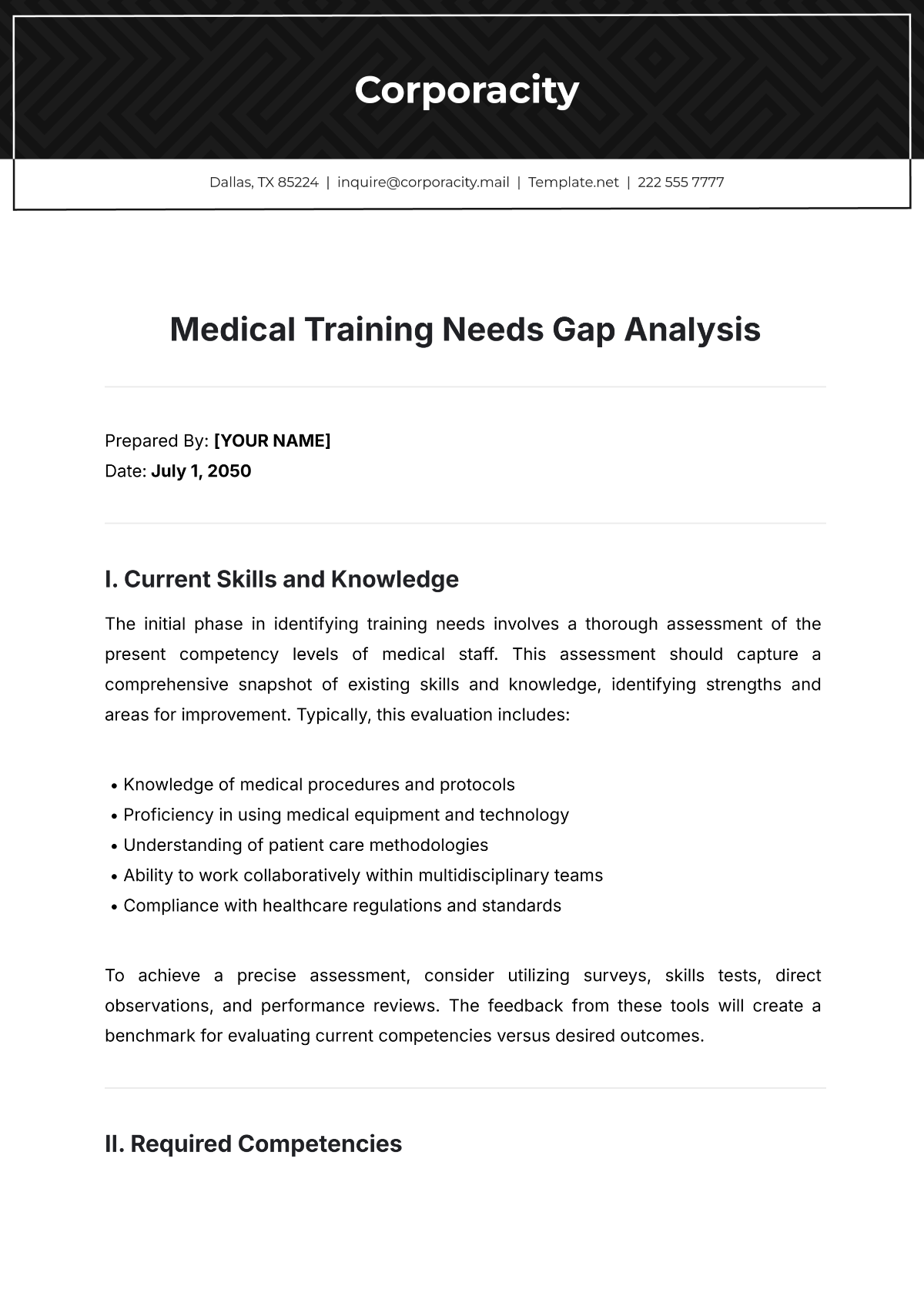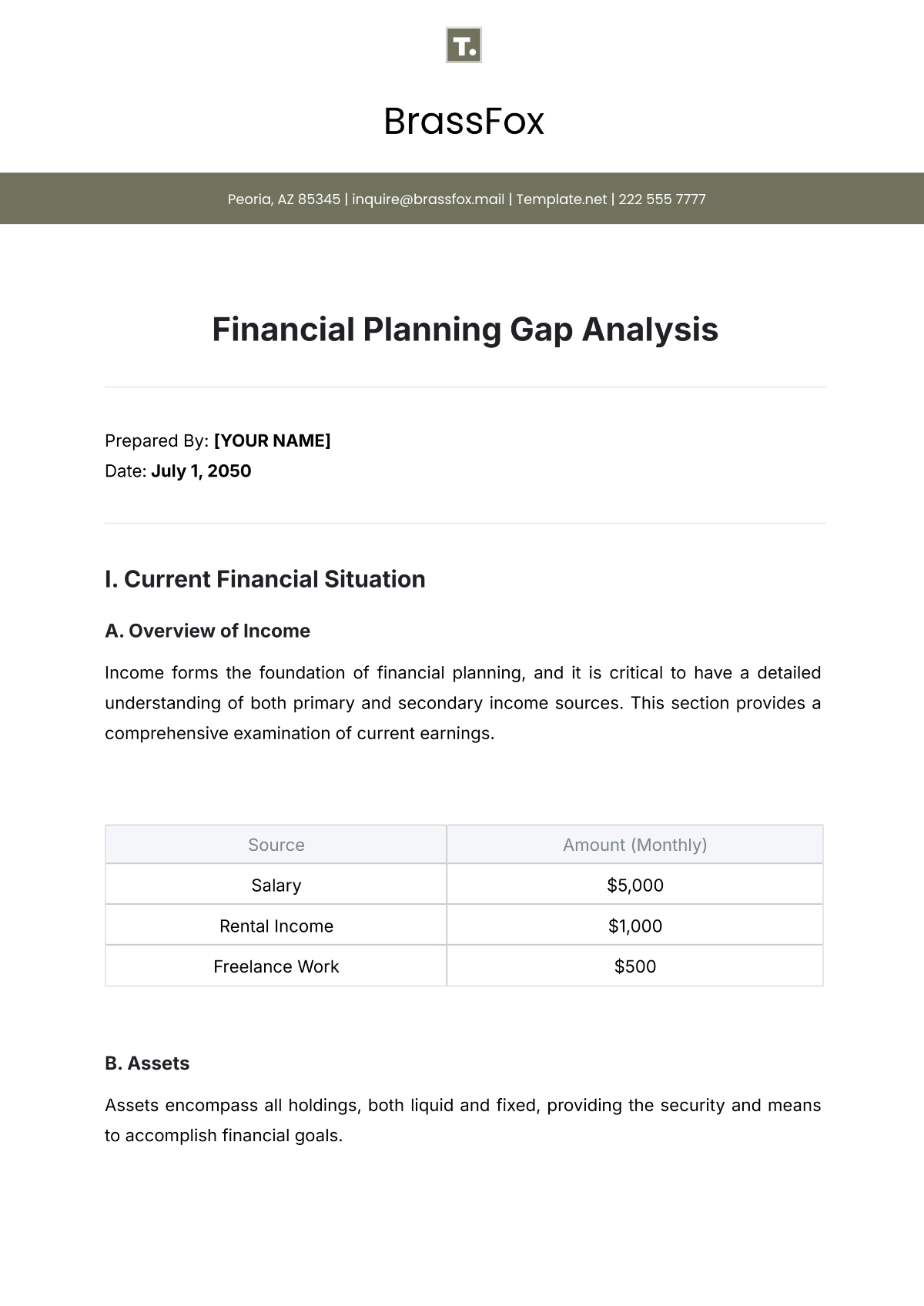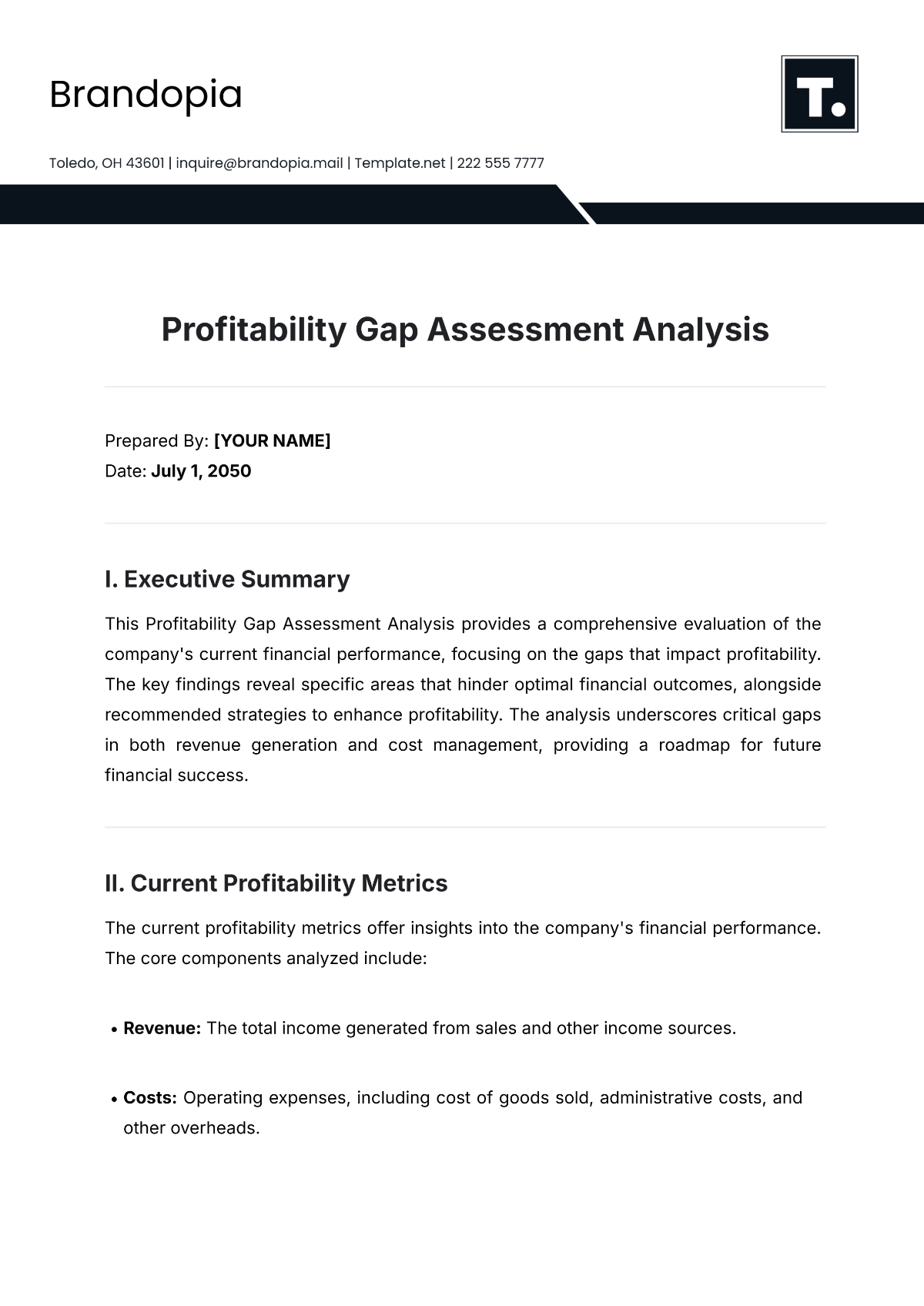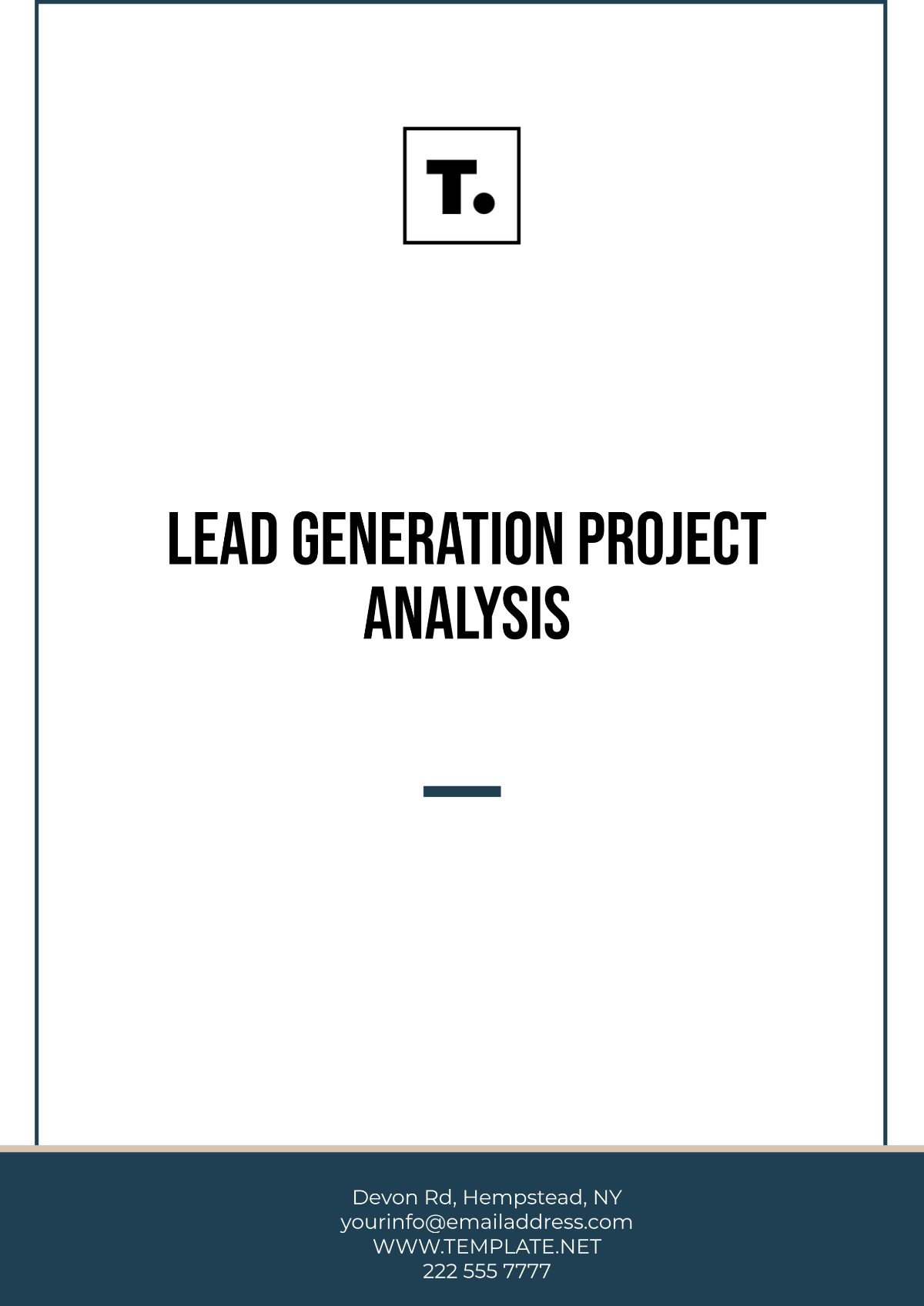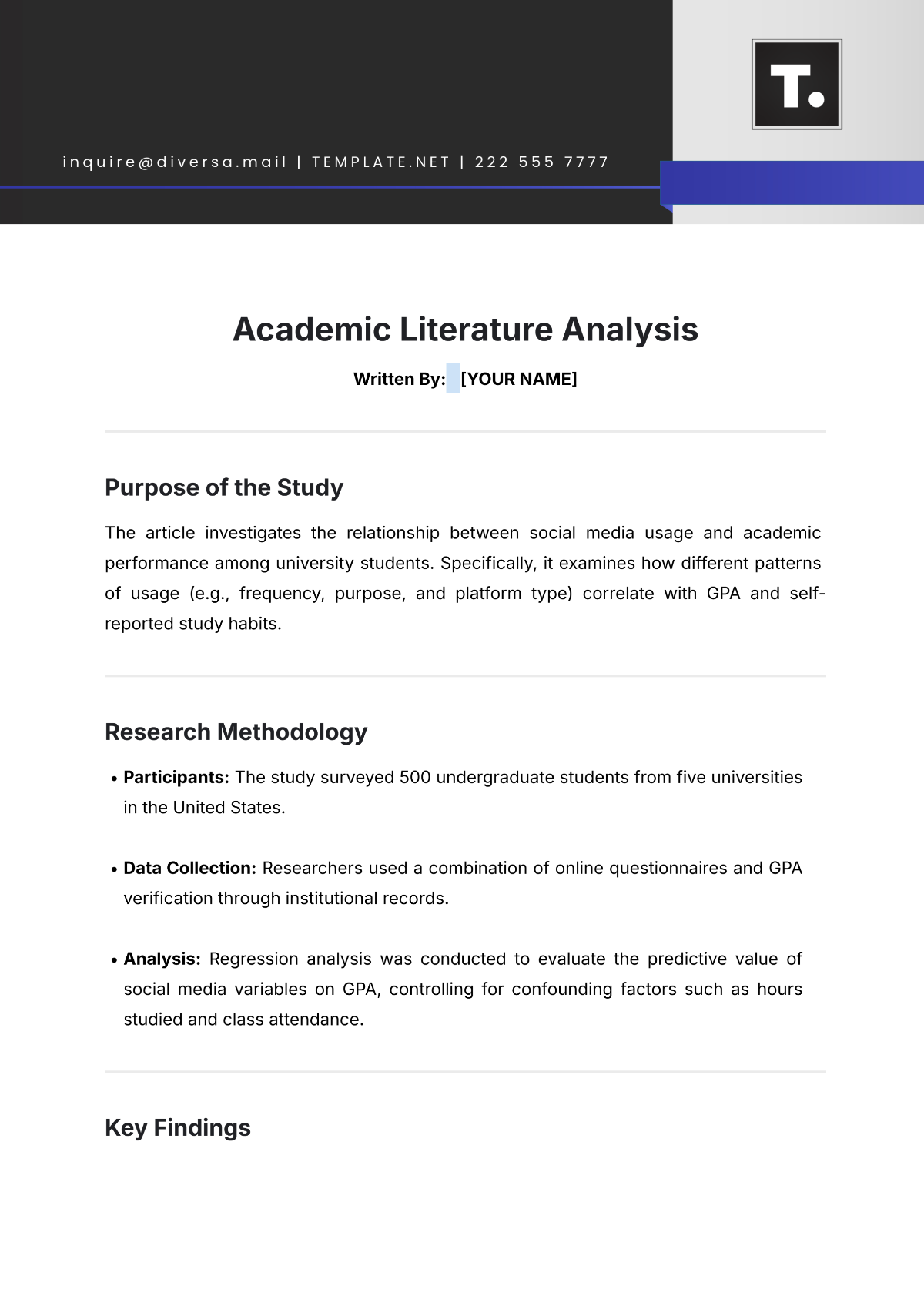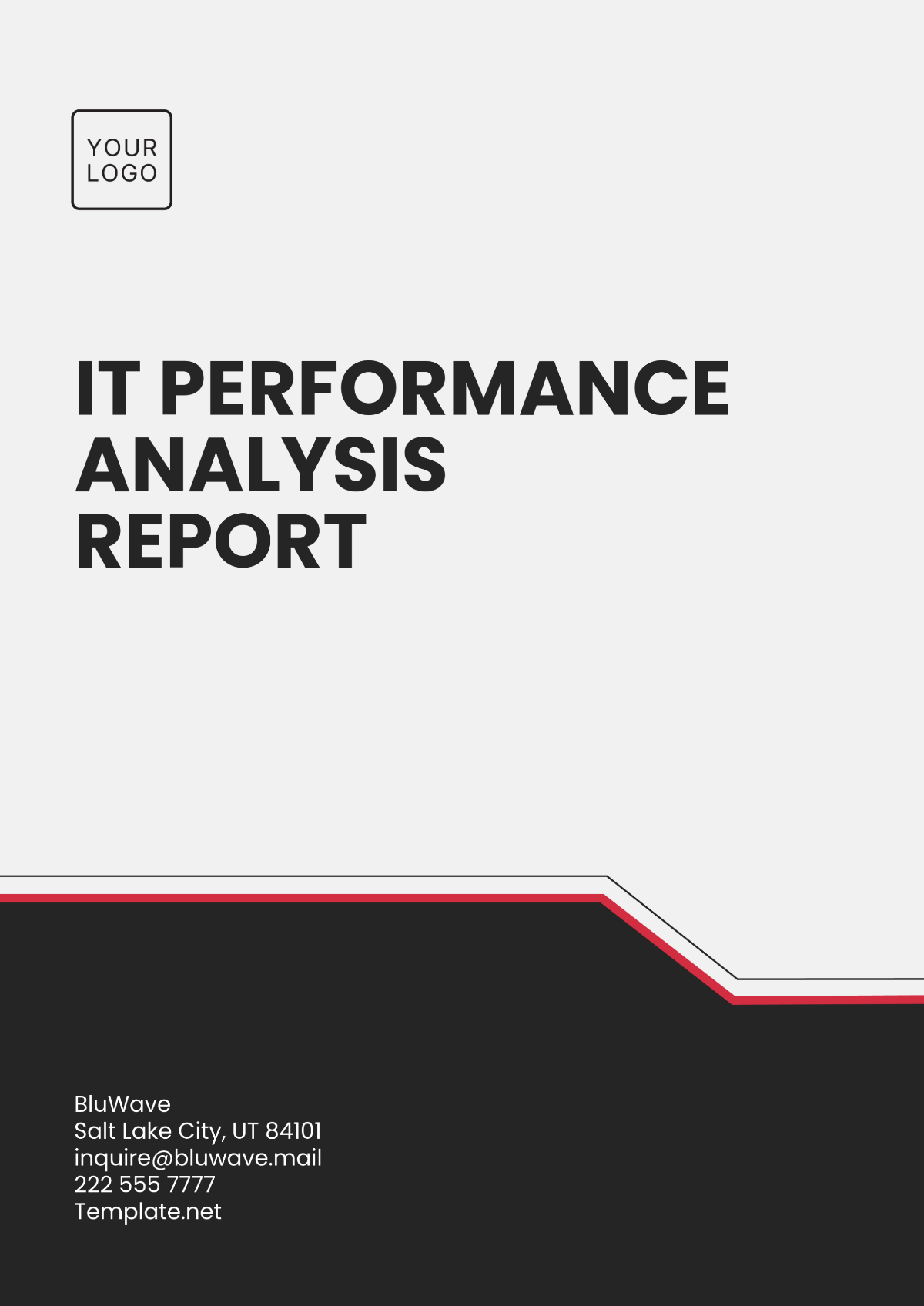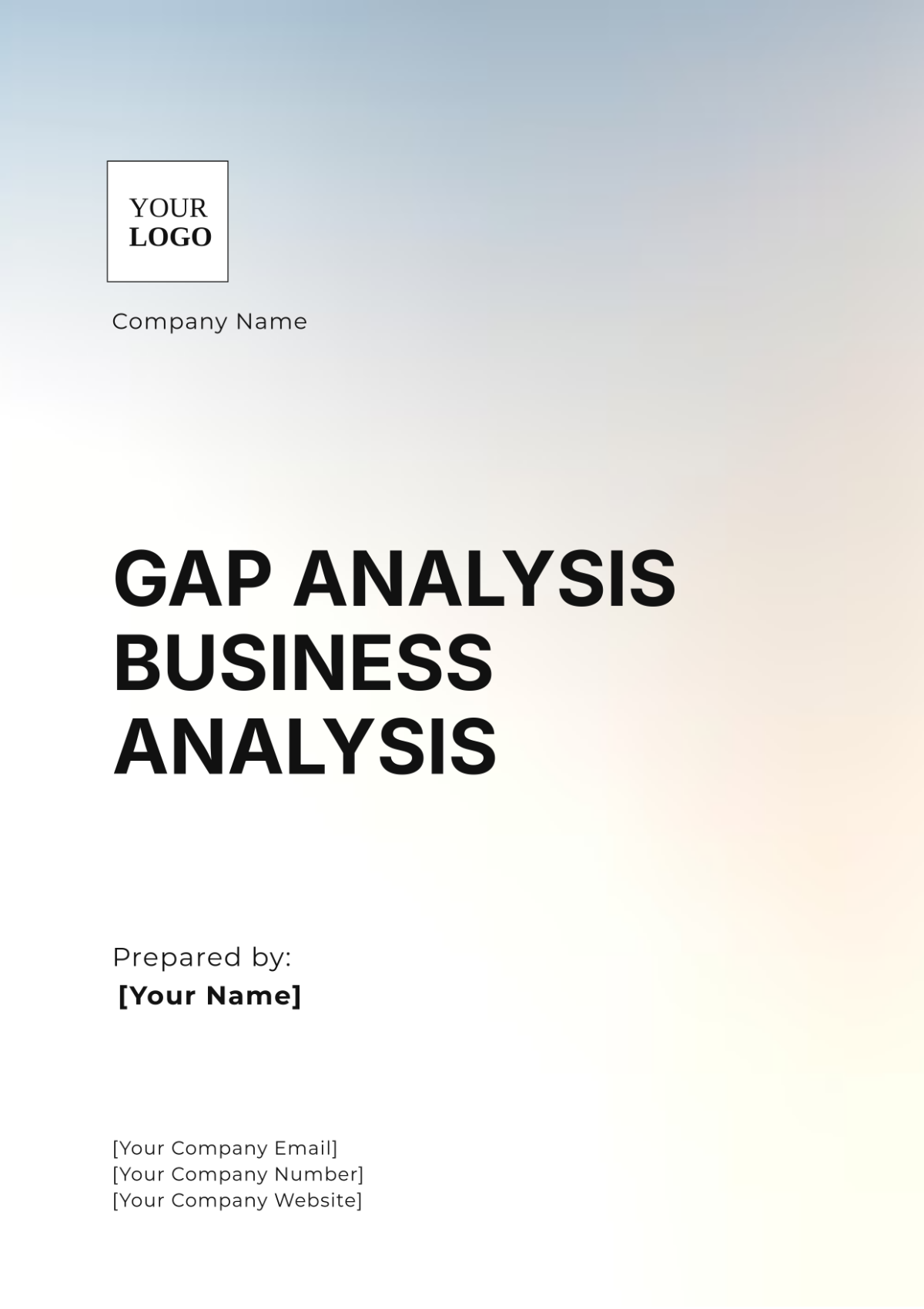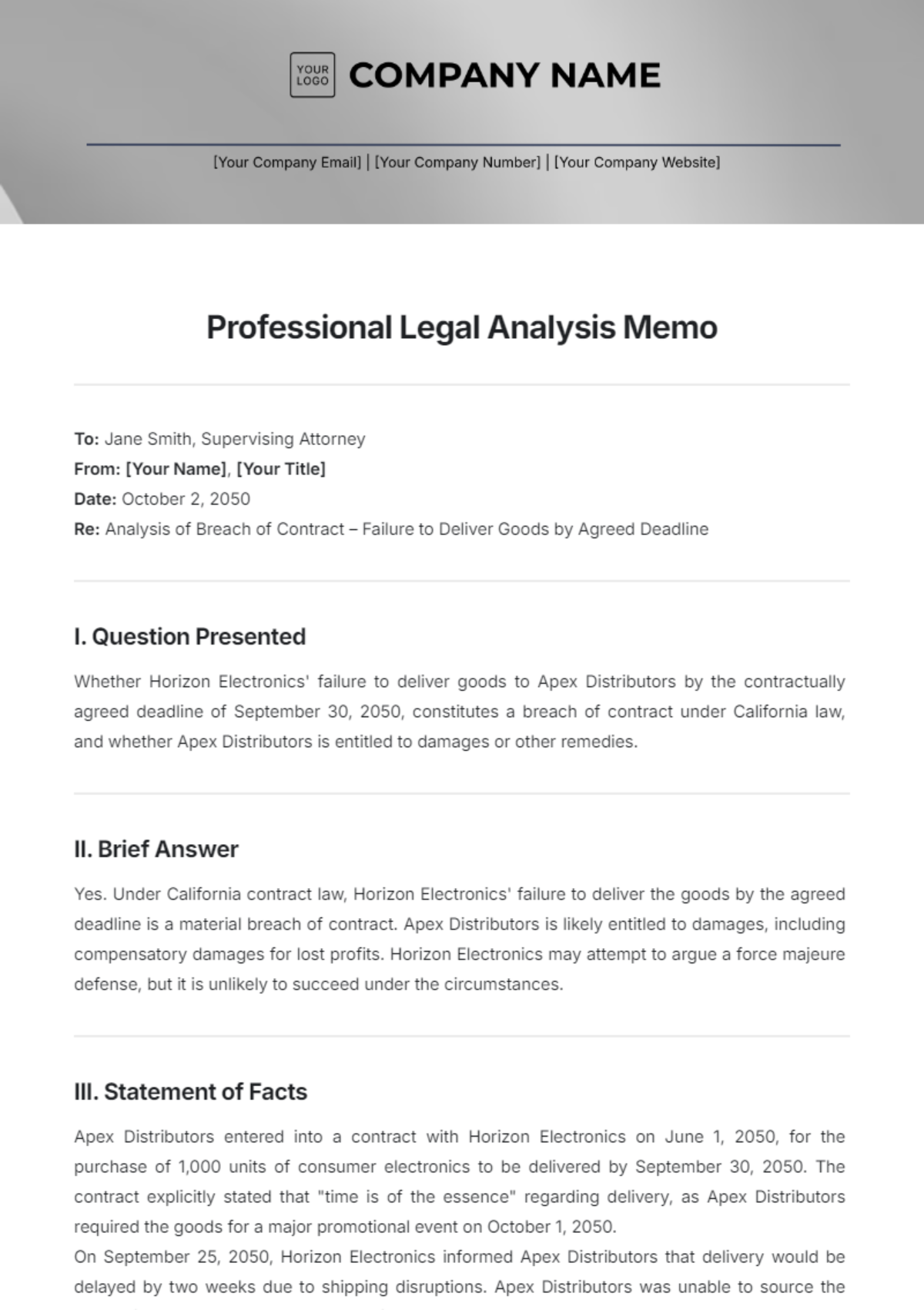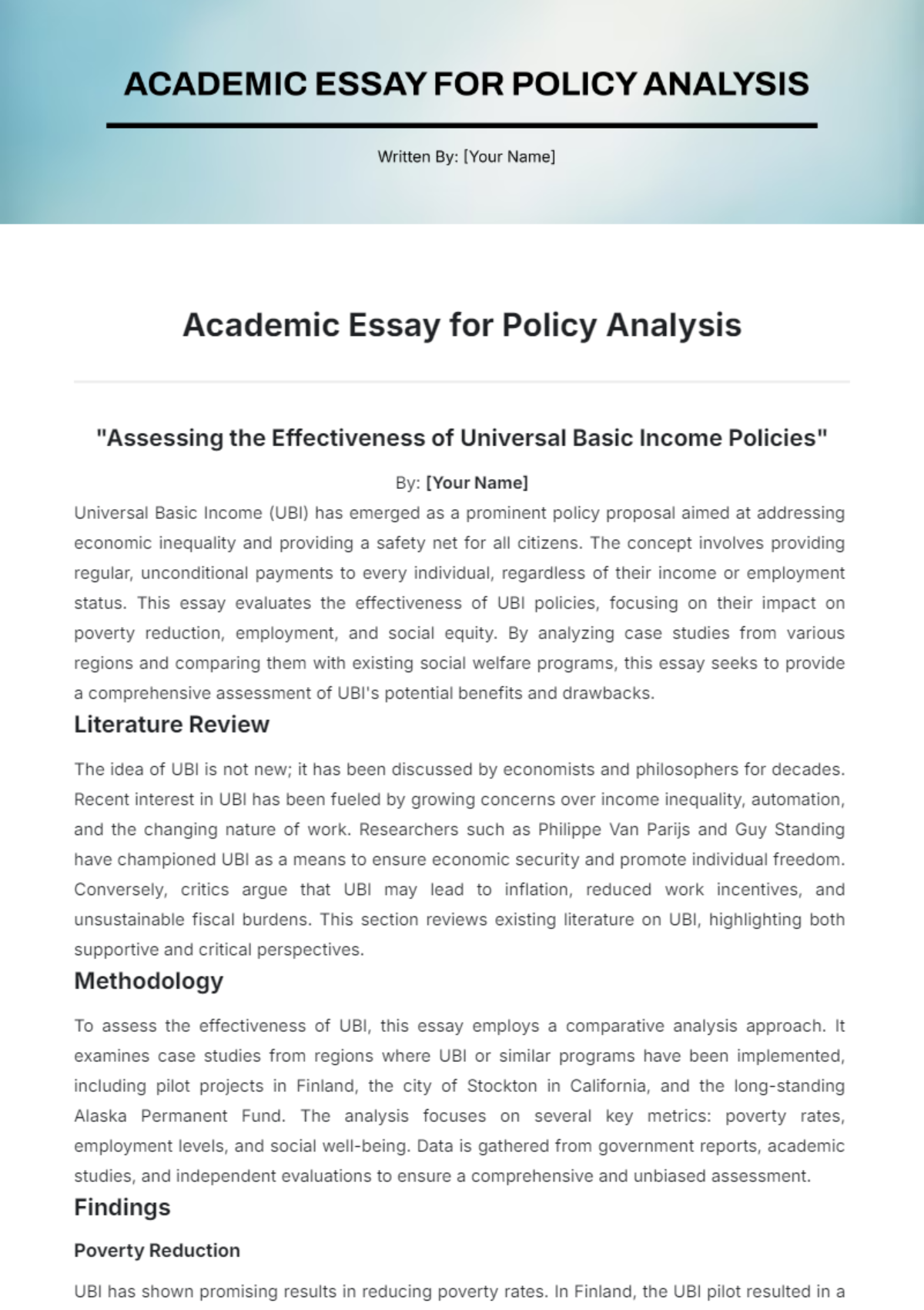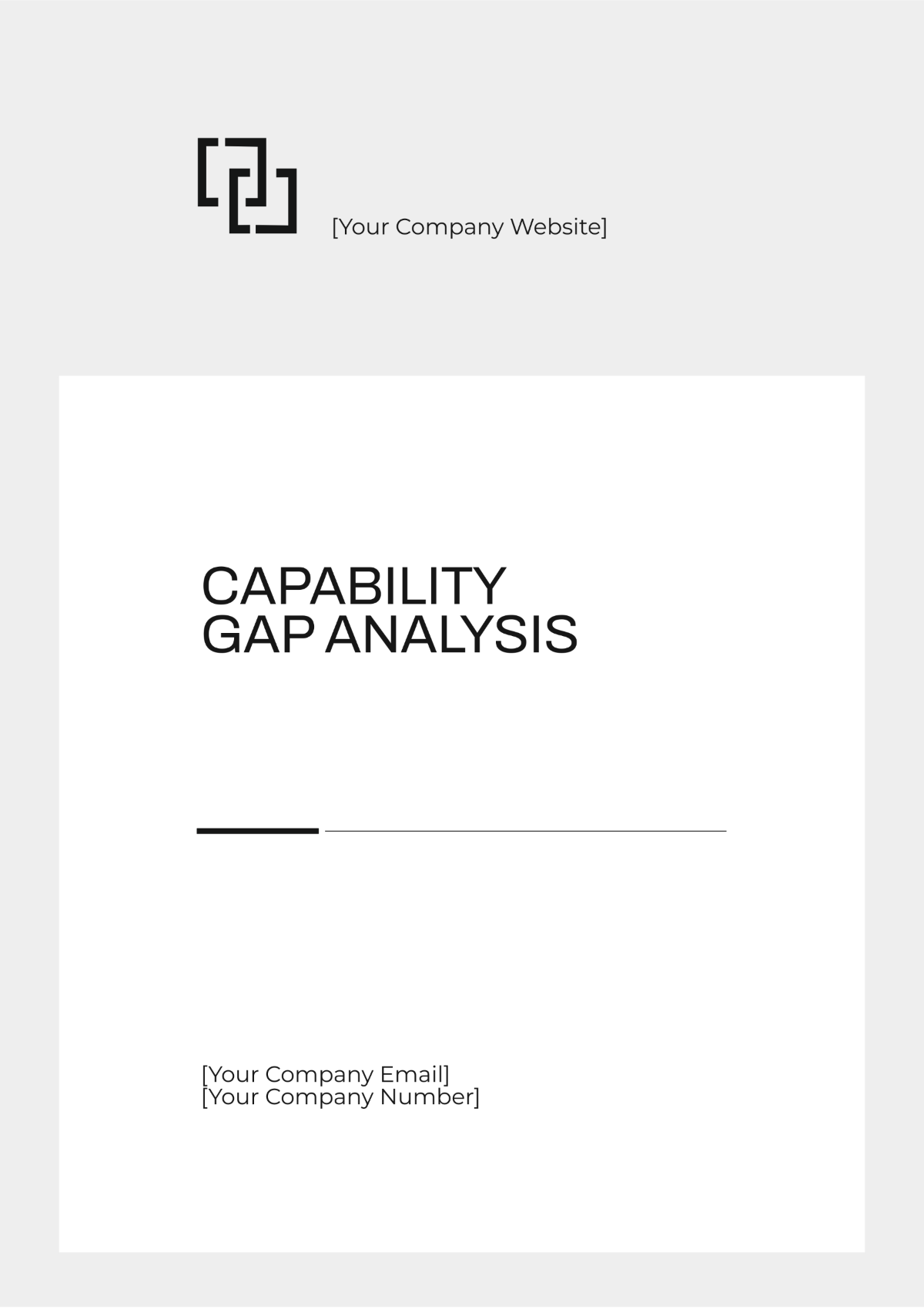Current Situation Analysis
Prepared By: | [YOUR NAME] |
Department: | [YOUR DEPARTMENT] |
Company: | [YOUR COMPANY NAME] |
I. Executive Summary
This Current Situation Analysis (CSA) offers a comprehensive evaluation of [Your Company Name]'s current standing in the marketplace, emphasizing strengths, weaknesses, opportunities, and threats. By scrutinizing these factors, this report provides valuable insights for strategic decision-making and future planning.
II. Introduction
In the ever-evolving landscape of technology-driven retail, [Your Company Name] operates amidst technological disruptions, changing consumer behaviors, and competitive pressures. Understanding the organization's current position is imperative for navigating these complexities and fostering sustained growth.
III. Financial Performance
Financial Performance for Fiscal Year 2049-2050:
Metric | FY2049 | FY2050 (Projected) | Change |
|---|---|---|---|
Revenue (in billions) | $12.5 | $14.2 | +13.6% |
Operating Profit | $3.8 | $4.1 | -7.9% |
Net Profit Margin | 9.6% | 8.5% | -11.5% |
Despite economic headwinds, [Your Company Name] sustained steady revenue growth in FY2049, fueled by innovative product launches and strategic expansions. Projections for FY2050 indicate a marginal decline in profit margins due to increased competition and rising operational costs.
IV. Market Position
Market Position Comparison as of Q2 2050:
Company | Market Share (%) | Customer Satisfaction | Brand Recognition |
|---|---|---|---|
[Your Company Name] | 32% | High | Strong |
Competitor A | 25% | Moderate | Moderate |
Competitor B | 18% | Low | Weak |
Despite fierce competition, [Your Company Name] maintains a leading market share, driven by a reputation for quality and customer-centricity. However, rivals continue to pose challenges with aggressive marketing strategies and innovative offerings.
V. Operational Efficiency
Operational Efficiency Metrics as of Q3 2050:
Metric | Current Status | Target Status |
|---|---|---|
Inventory Turnover Ratio | 4.5 | 5.0 |
Order Fulfillment Time | 2 days | 15 days |
Production Downtime | 8% | 5% |
[Your Company Name] has made strides in enhancing operational efficiency, evidenced by improvements in inventory turnover and order fulfillment times. However, challenges persist in minimizing production downtime, necessitating focused interventions.
VI. Technological Infrastructure
Technological Infrastructure Overview as of Q4 2050:
Technology Initiative | Implementation Status | Impact on Operations |
|---|---|---|
ERP System Upgrade | Completed | Streamlined Processes |
IoT Integration | Pilot Phase | Real-time Monitoring |
AI-driven Customer Analytics | In Progress | Enhanced Insights |
[Your Company Name] continues to invest in cutting-edge technologies to drive operational excellence and customer satisfaction. While several initiatives have been successfully implemented, ongoing efforts are underway to leverage AI and IoT for deeper business insights.
VII. Human Resources
Employee Engagement Metrics as of Q1 2051:
Metric | Current Status | Improvement Initiatives |
|---|---|---|
Employee Turnover Rate | X% | Mentorship Programs |
Training Hours per Employee | Y hours | Skills Development Workshops |
Employee Satisfaction Score | Z | Recognition Programs |
[Your Company Name] prioritizes employee engagement and development to foster a thriving organizational culture. Initiatives such as mentorship programs and skills workshops aim to boost employee retention and satisfaction.
VIII. SWOT Analysis
Strengths:
Strong brand reputation
Resilient financial performance
Advanced technological infrastructure
Talented and motivated workforce
Weaknesses:
Marginally declining profit margins
Operational inefficiencies in certain areas
Talent retention challenges
Opportunities:
Expansion into emerging markets
Integration of advanced analytics for personalized customer experiences
Strategic acquisitions and partnerships
Threats:
Intense market competition from established and emerging players
Economic volatility and geopolitical uncertainties
The rapid pace of technological disruption
IX. Conclusion
In conclusion, [Your Company Name] is well-positioned to navigate the challenges and capitalize on the opportunities presented by the dynamic business landscape. By leveraging its strengths, addressing weaknesses, and remaining agile in the face of change, [Your Company Name] can sustain its growth trajectory and emerge as a leader in the global marketplace.

